Hello everyone,
Today, I'd like to share with you a visit I made during my recent trip to Fes, and more specifically to the Hotel Staouniyine, a historic monument that exudes the past and tells the stories of traditional Moroccan crafts. This fascinating place is close to the Médersa El-ATTARIN !
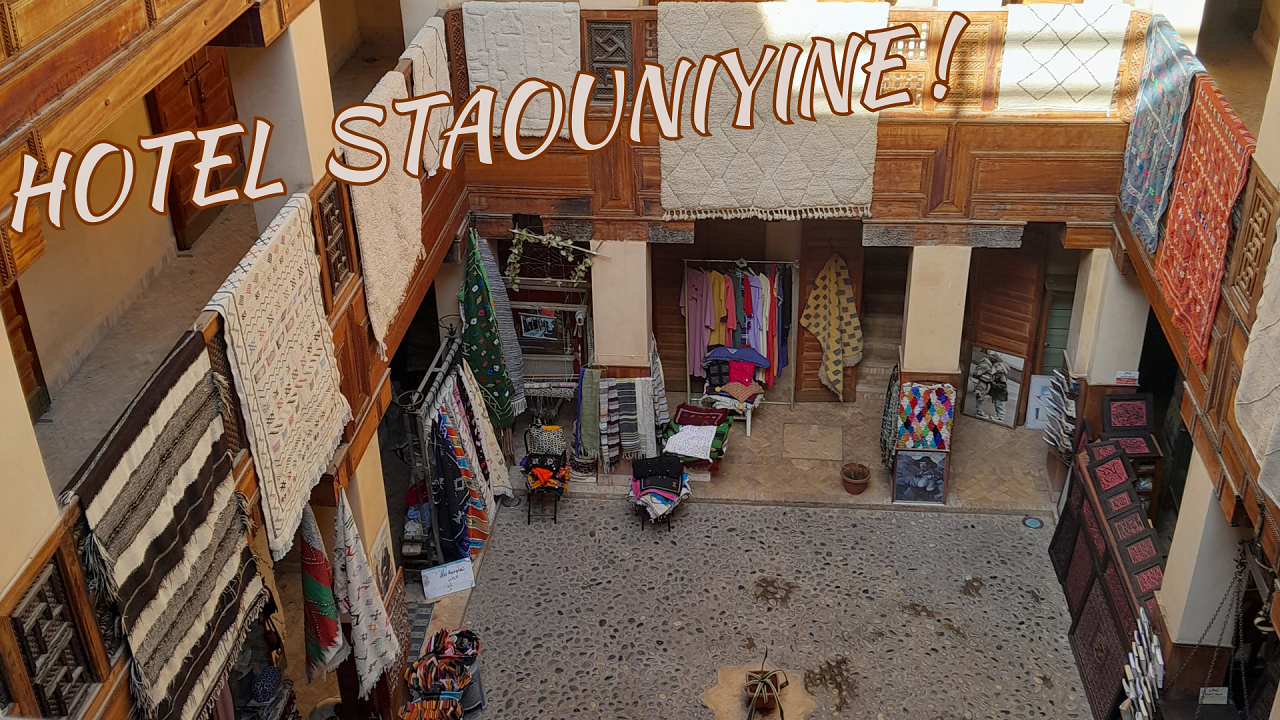
Honestly, this Foundouk was definitely not one of the places I had planned to visit. I'd never even heard of it before! But as is often the case, the best discoveries are made by chance. As I strolled along the winding streets of the old town, I was drawn to a series of magnificent old doors, each more beautiful than the last...
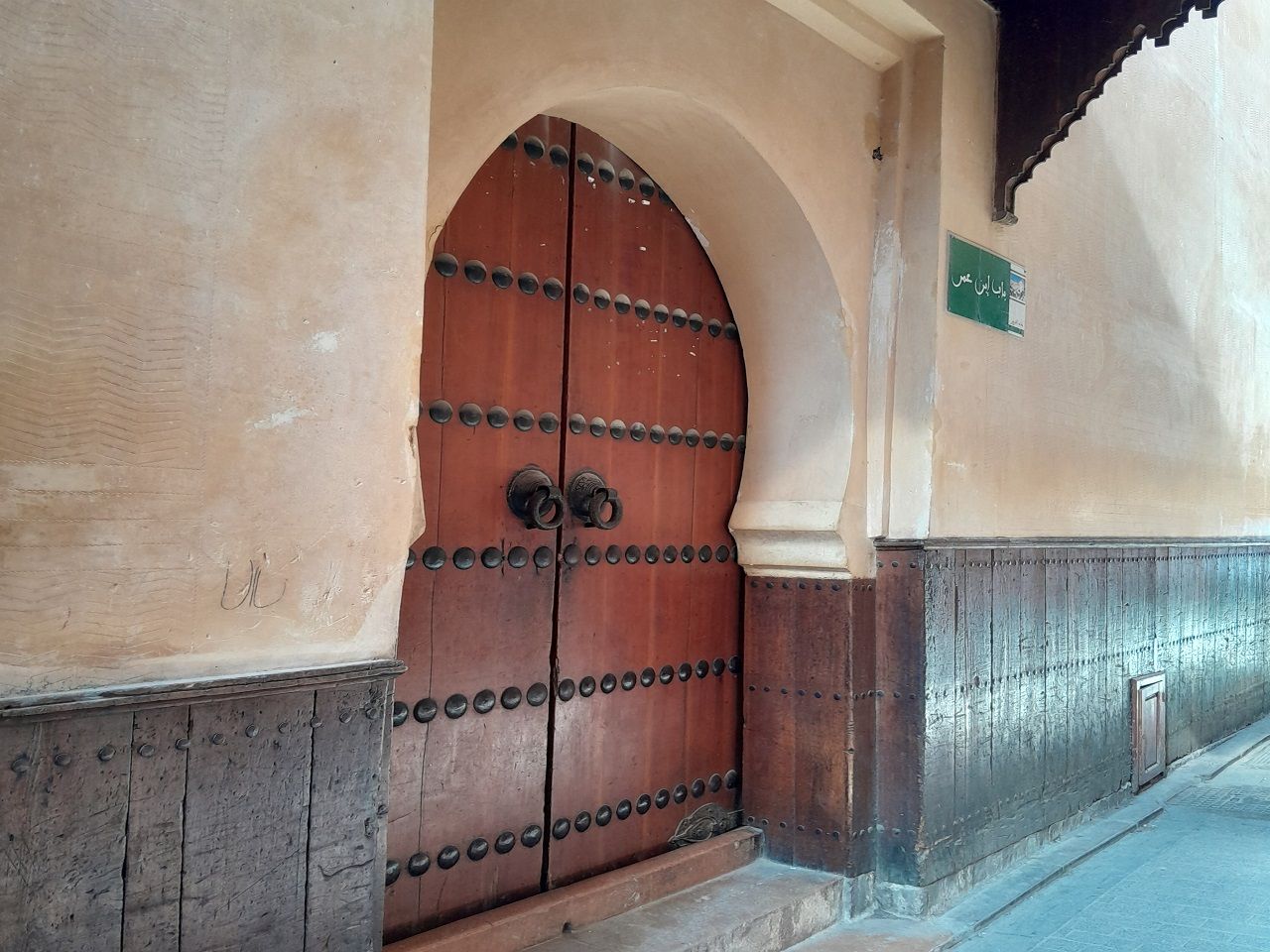
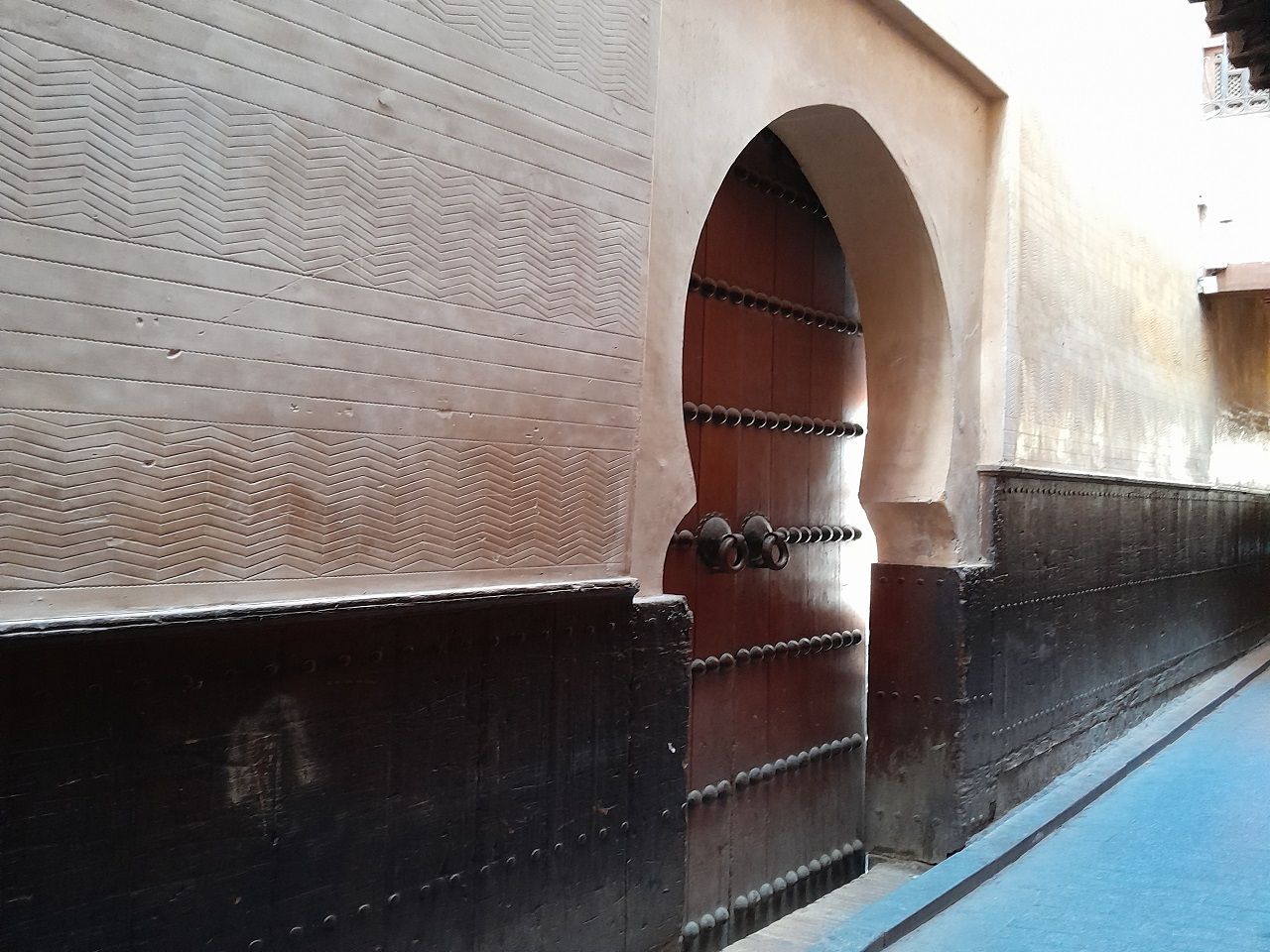
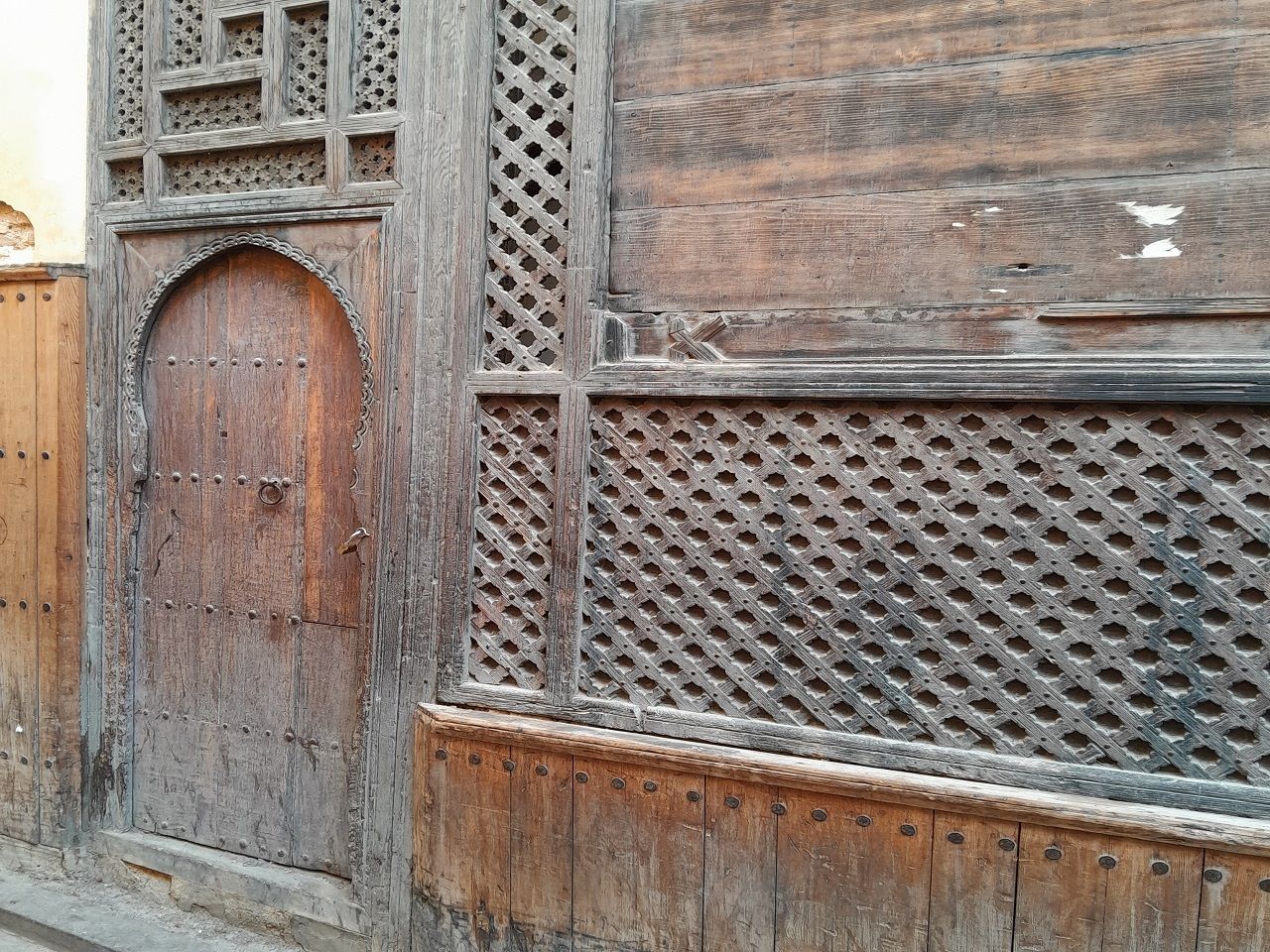
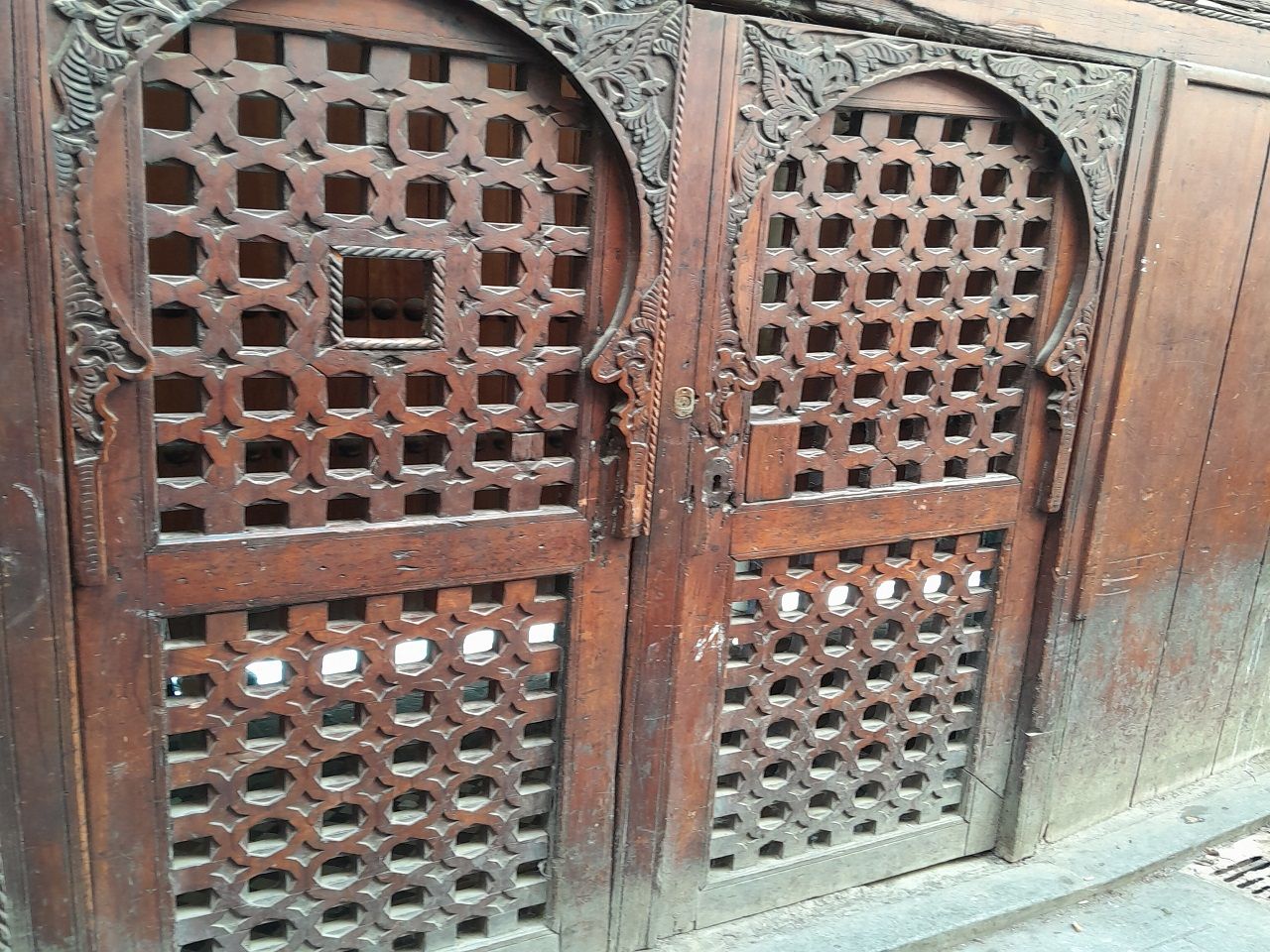
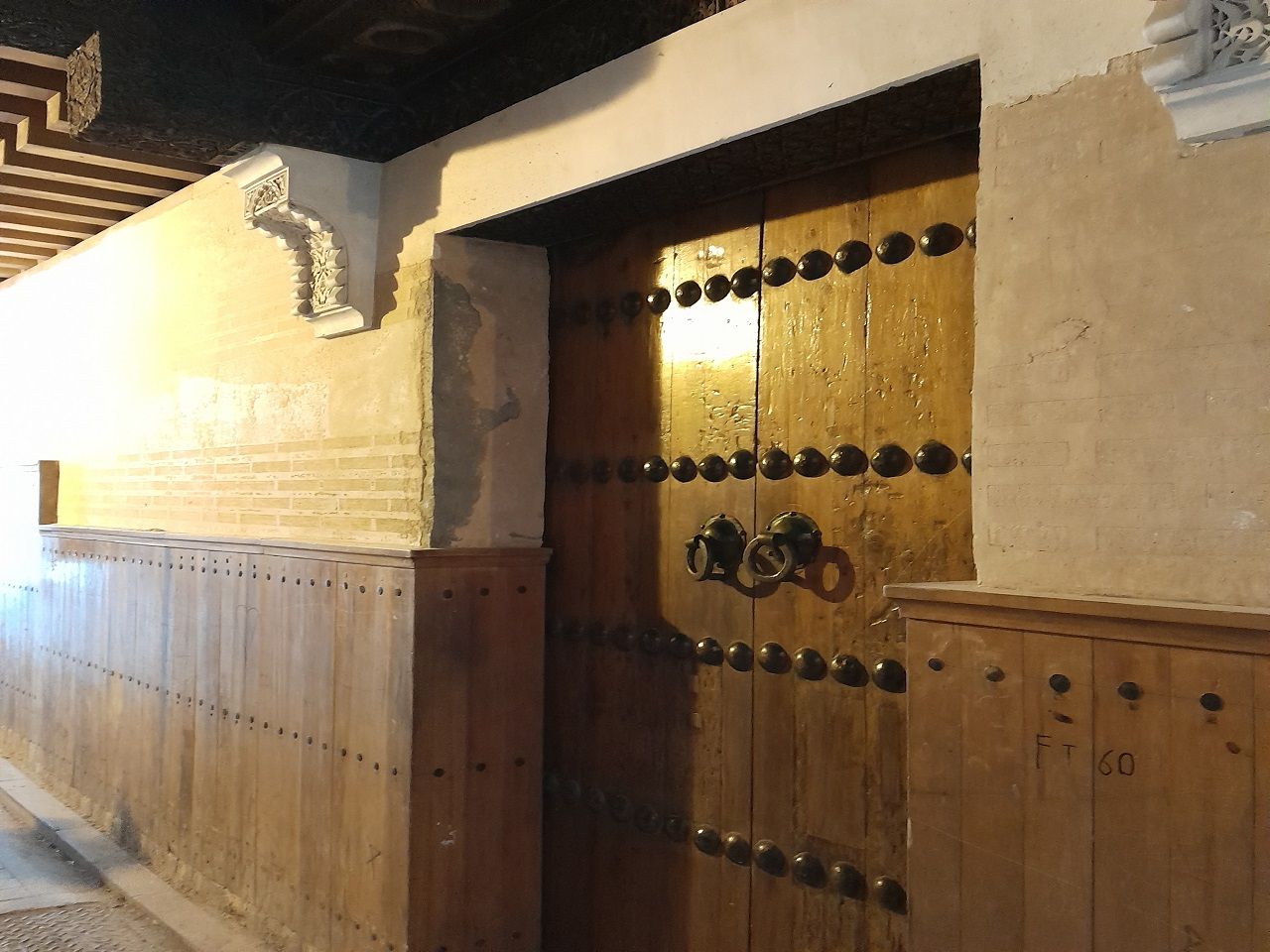
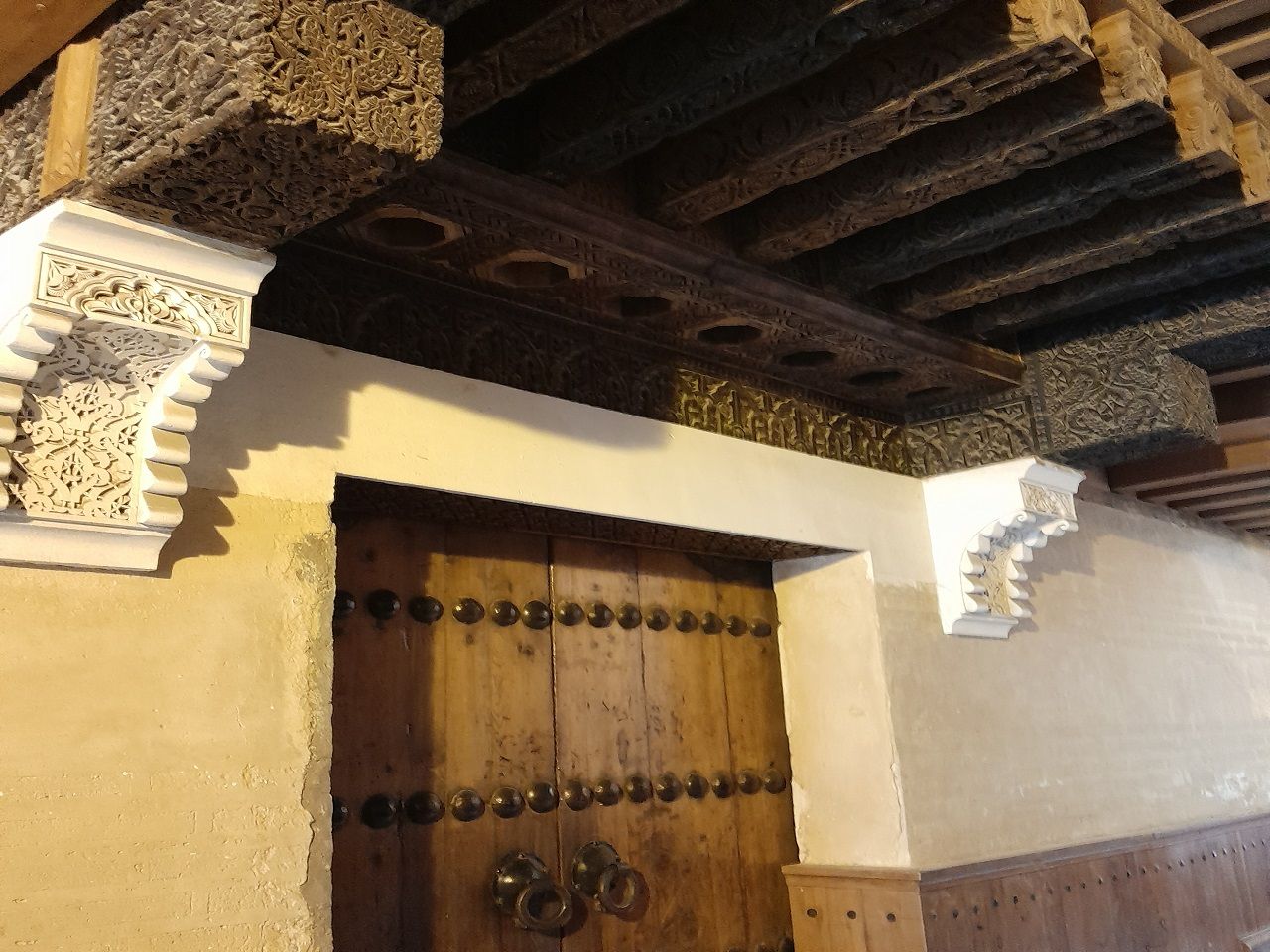
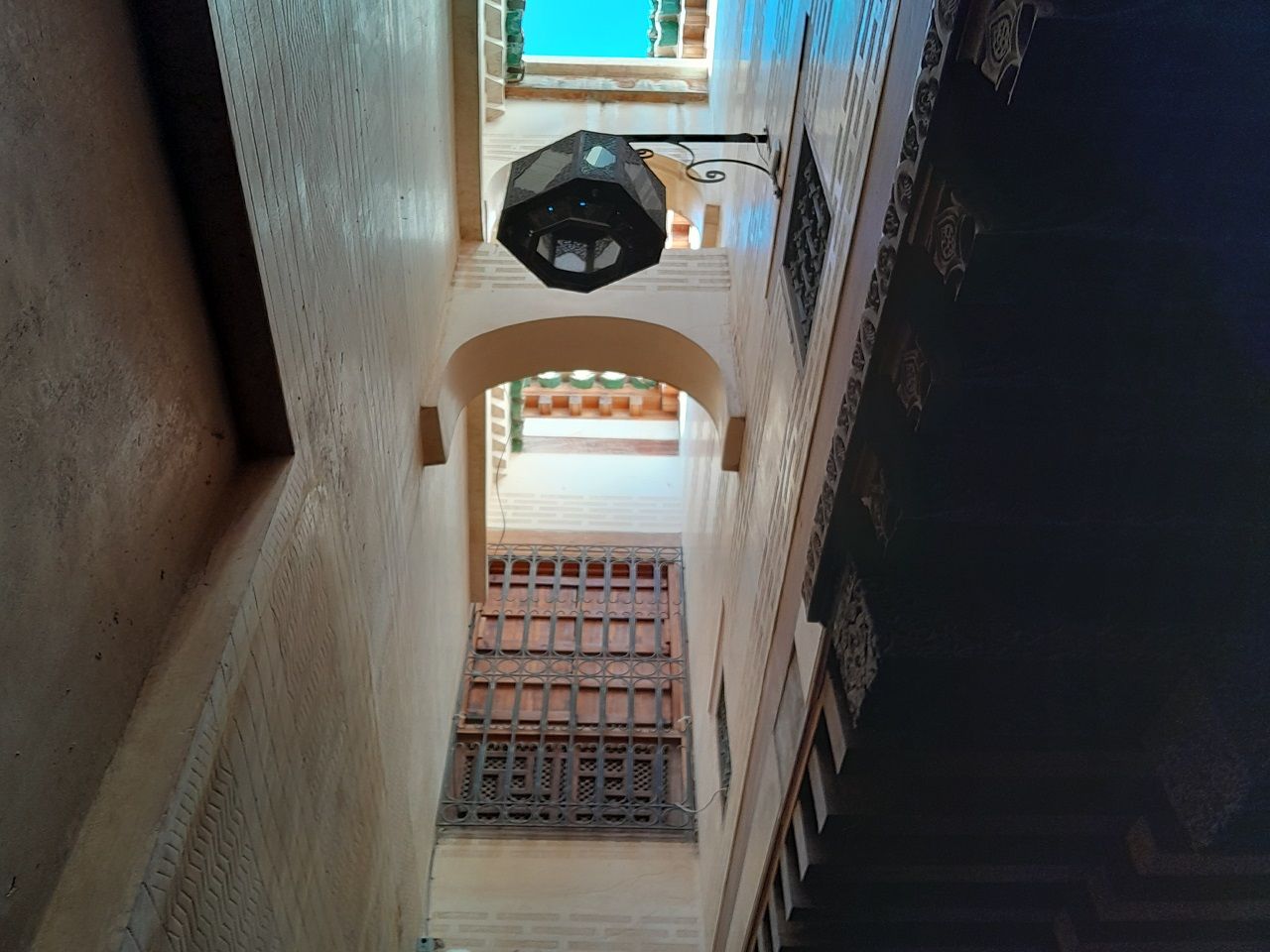
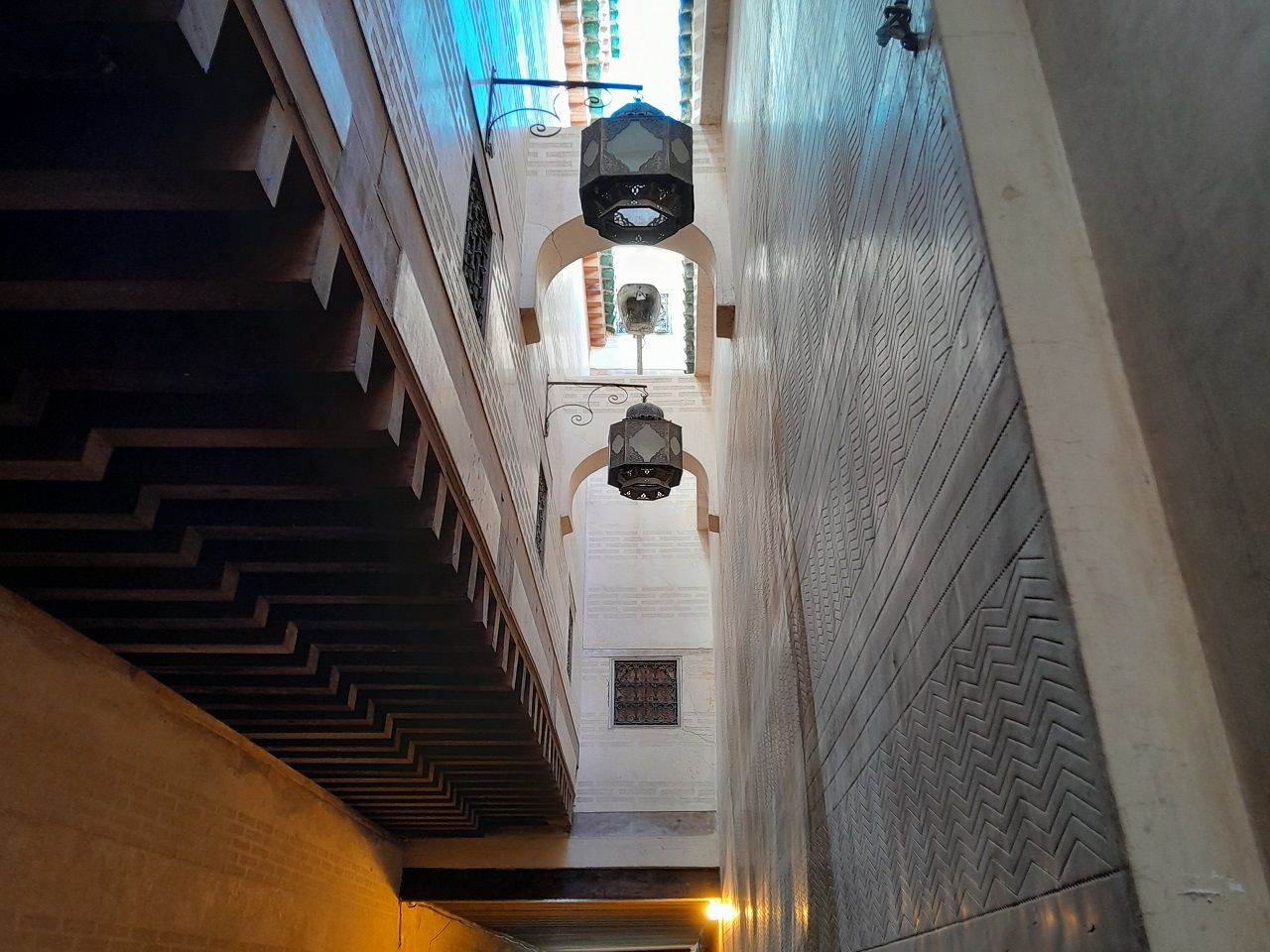
Following my instincts, I found myself in front of this monument, a place that was totally unknown to me until that moment. A small, discreet plaque indicated its name: Foundouk Staouniyine. This intriguing name made me want to know more. Without hesitation, I crossed the threshold of this large door. Inside, I discovered a space steeped in history, which immediately transported me to another era.
I can't explain what compelled me to enter. Perhaps it was the mysterious atmosphere that pervaded the area, or maybe it was just my natural curiosity. Just goes to show, the unexpected detours on our walks are often the richest in surprises!
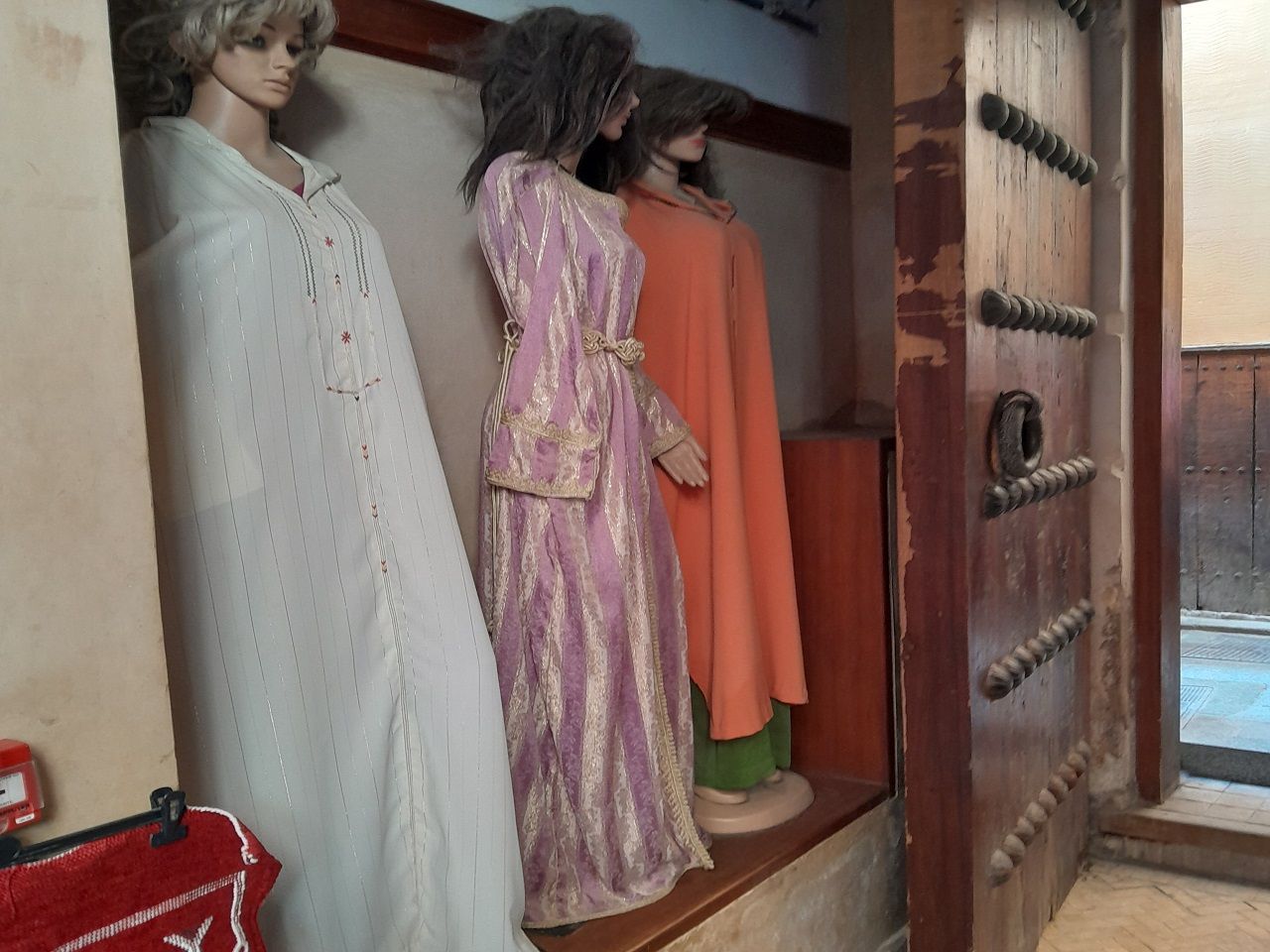
Why is it called a fondouk (hotel)?
The term “hotel” (fondouk in Arabic) in the traditional Moroccan context does not have the same meaning as the modern hotel we know today as a place of accommodation and rest. In the past, it was used to designate an economic and commercial center or complex. This type of fondouk played a key role in the economic and social life of ancient cities like Fes, serving as a meeting place for cultural exchanges. Merchants from distant towns and regions would gather here, spending their nights negotiating, sharing news and displaying their wares.
In the distant past in Morocco, the fondouk was a space that welcomed merchants from different regions. Merchants would bring their wares here for display or storage. The fondouk thus served as both a market and a safe place to trade, especially for merchants from far away. Some rooms were even used as artisans' workshops, where carpets, pottery and other handicrafts were made.
Those visiting the medina of Fes in search of its historic monuments will notice many buildings bearing the name fondouk. Over time, this name has remained attached to these historic buildings, testifying to the important role they played in trade and crafts, even if today they no longer fulfill this function. They are now tourist and cultural sites. The term remains associated with their original function as a commercial complex, rather than a modern hotel.
As soon as I entered the fondouk, I was greeted by a large courtyard on the first floor. A vast esplanade surrounded by traditional rooms displaying a variety of Moroccan crafts. The place was like a tableau vivant, witness to the flourishing life that had existed here centuries before. In the center of the courtyard, light streamed in from above, illuminating the space in a unique and enchanting way.
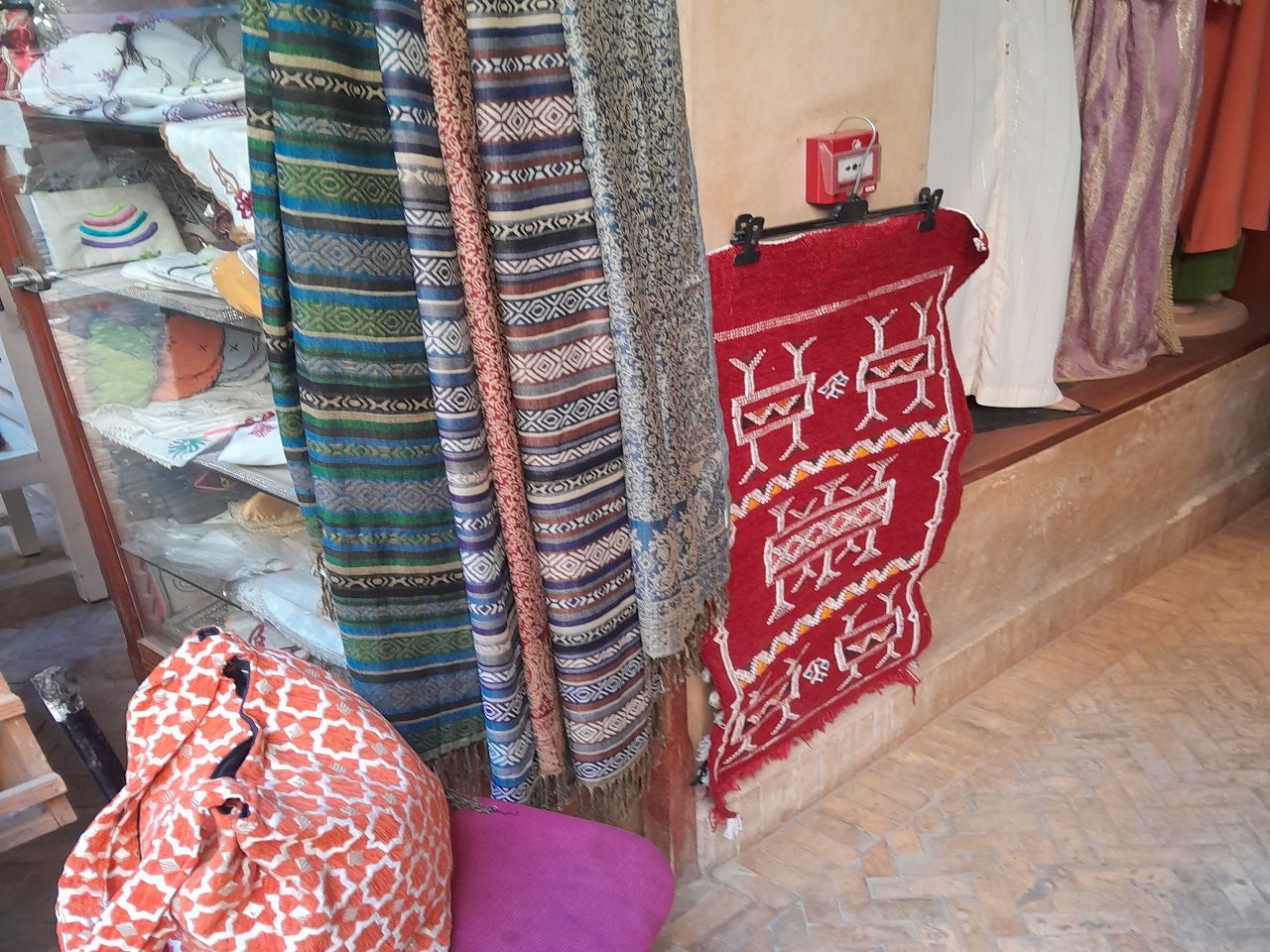
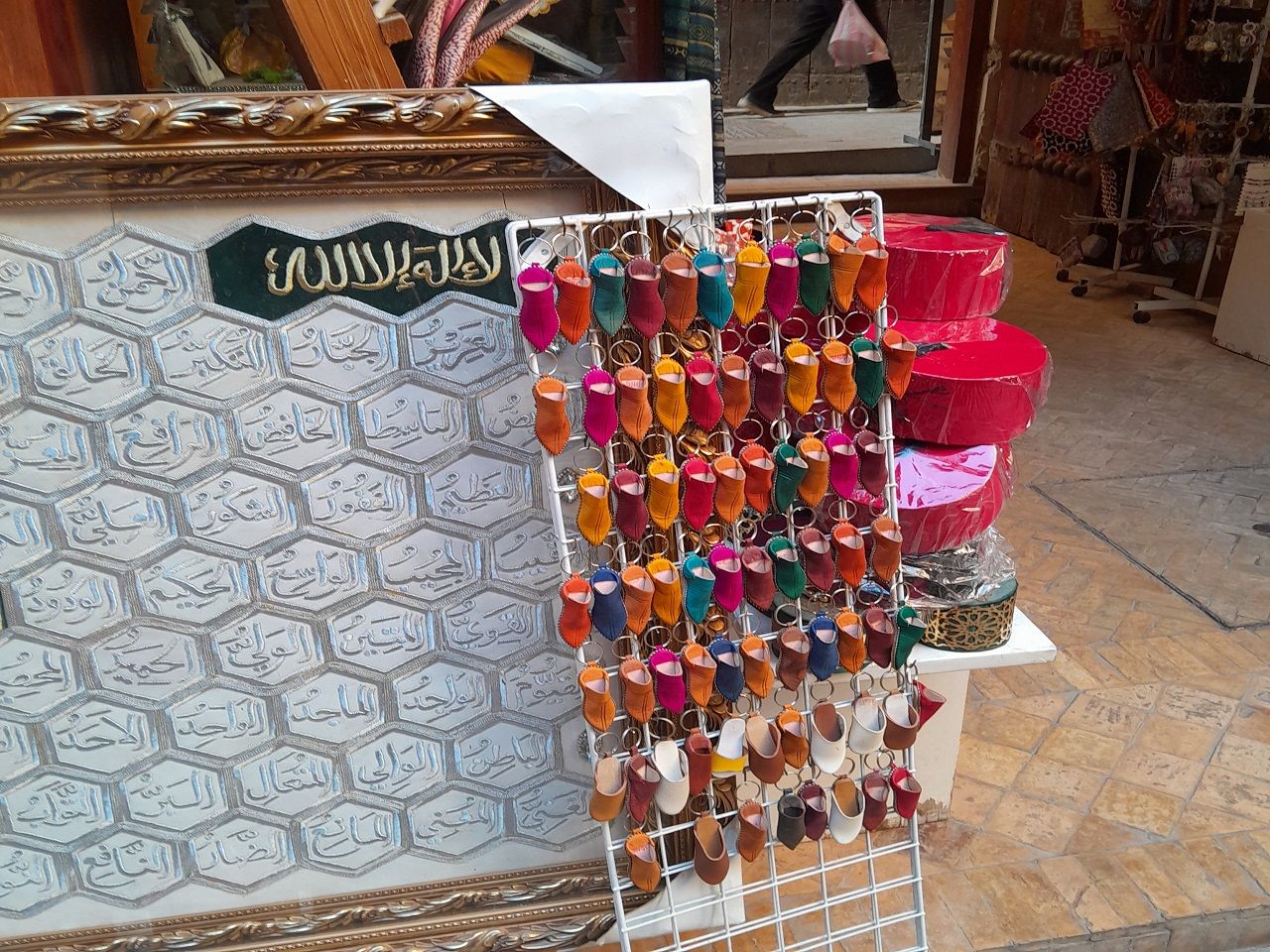
Walking through the courtyard, my eye was drawn to the traditional carpets hanging on the walls. Each rug is unique, with its own authentic Moroccan colors and patterns. I stood there for a while, in the middle of the courtyard, slowly turning around to admire the meticulous details. Then I explored the rooms one by one until I came across a set of engraved paintings, with an ancient sundial at their center, once used to measure time using sunlight. It was a fascinating scene, taking me back to a time when people lived by the rhythm of the sun.
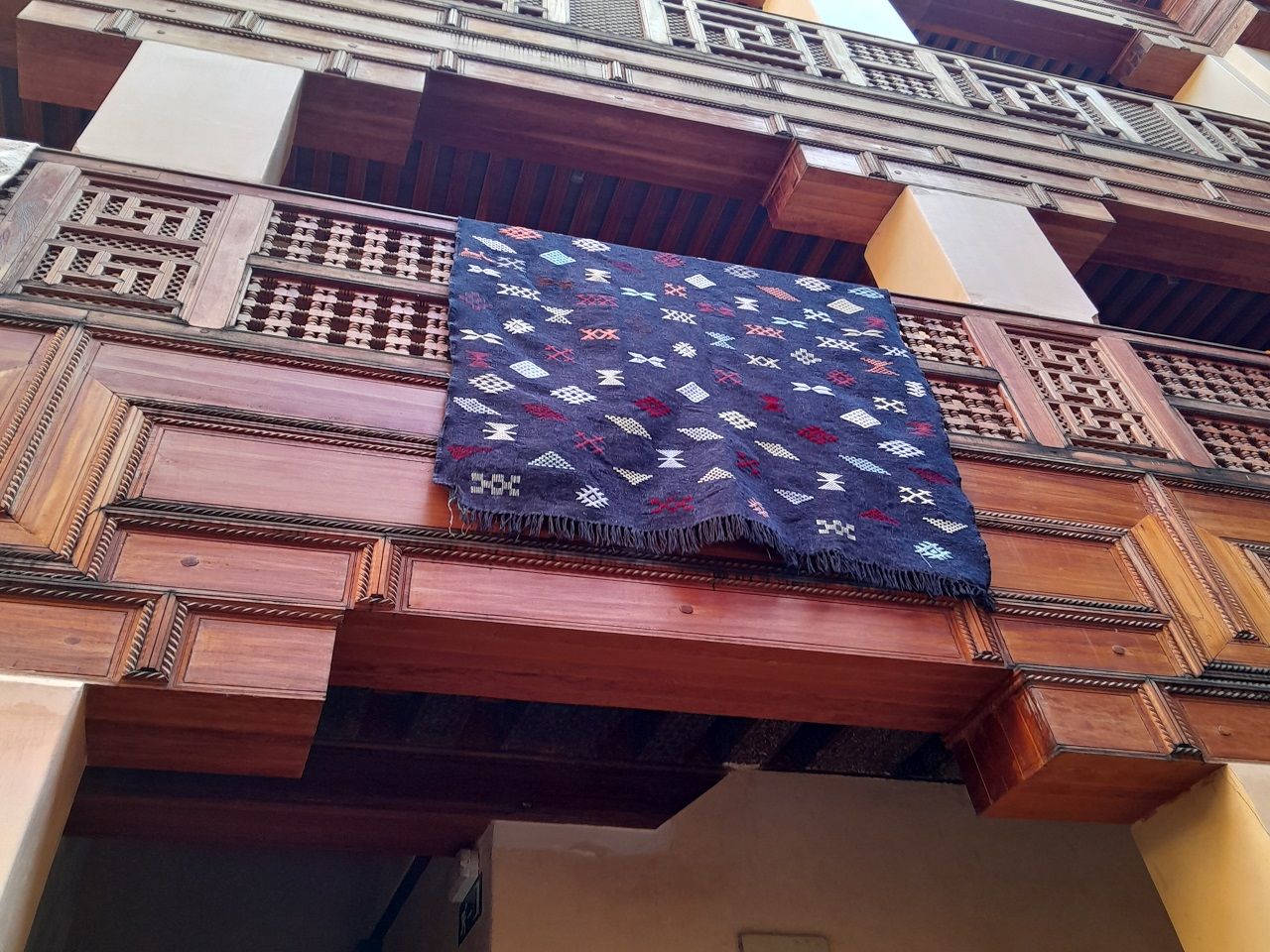
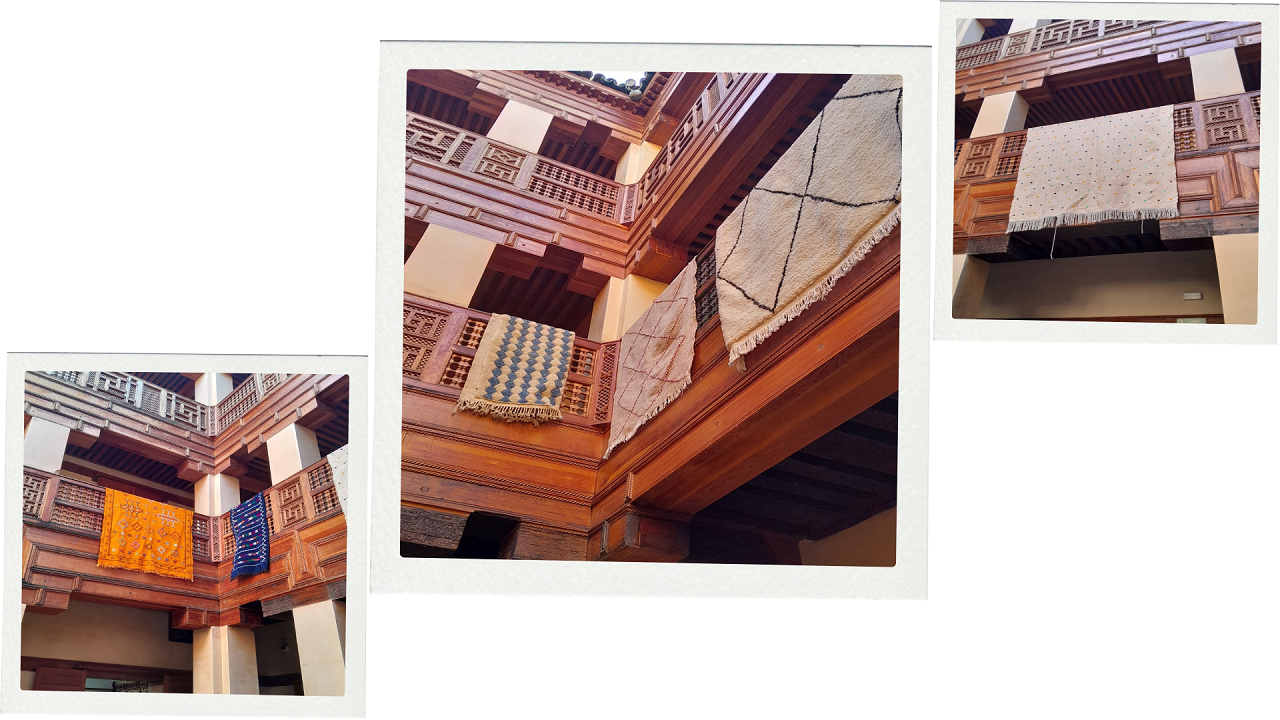
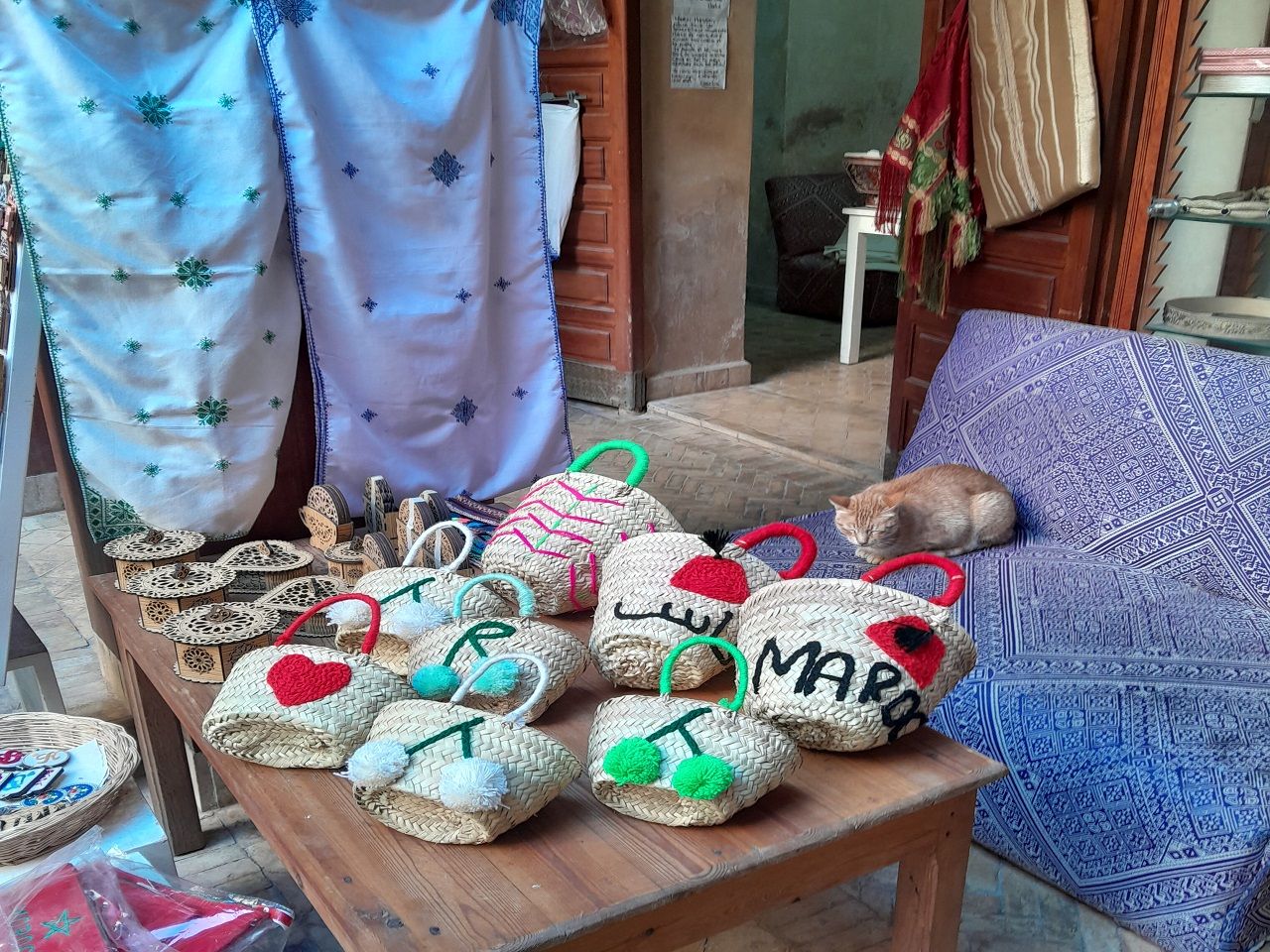
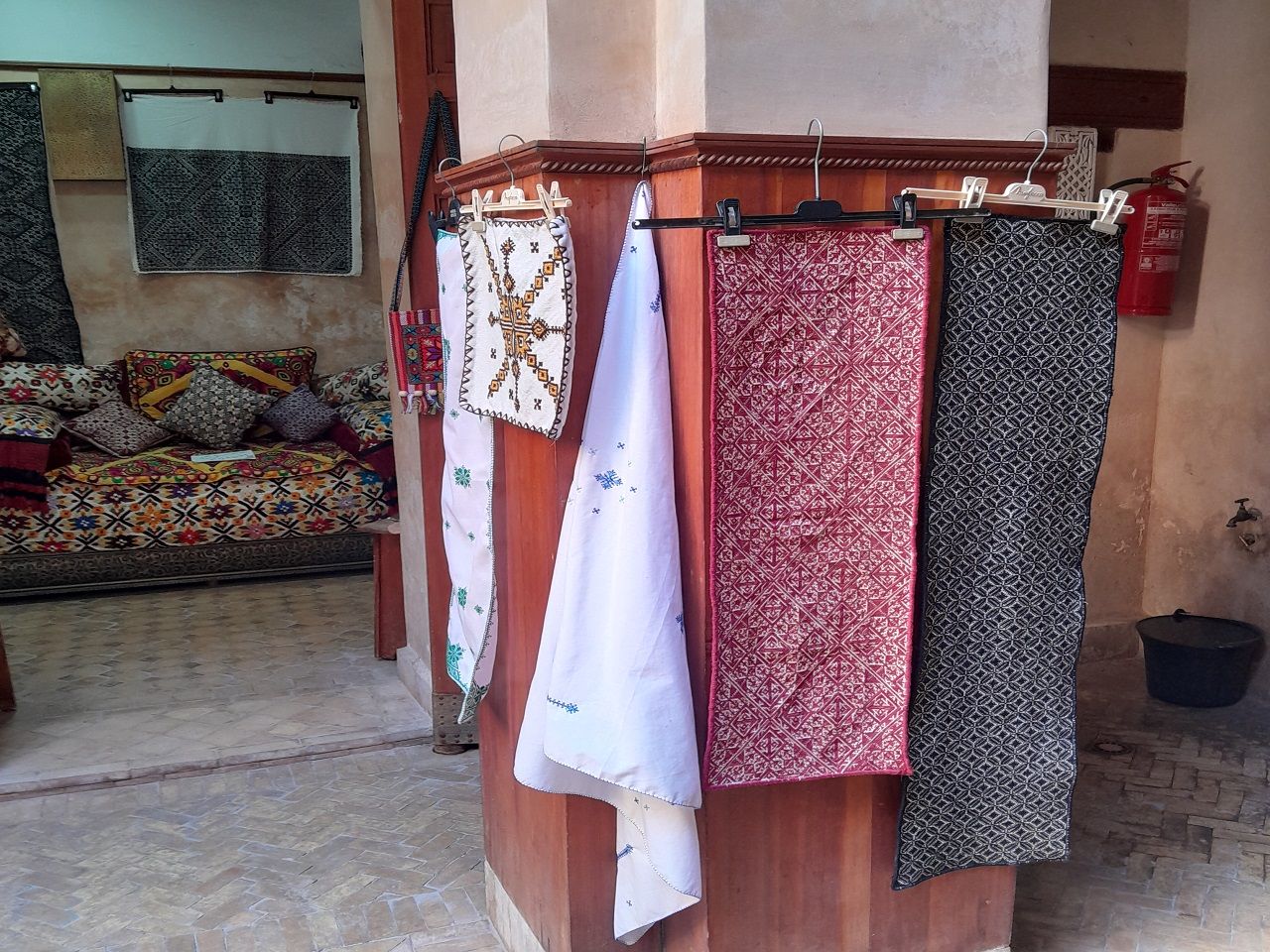
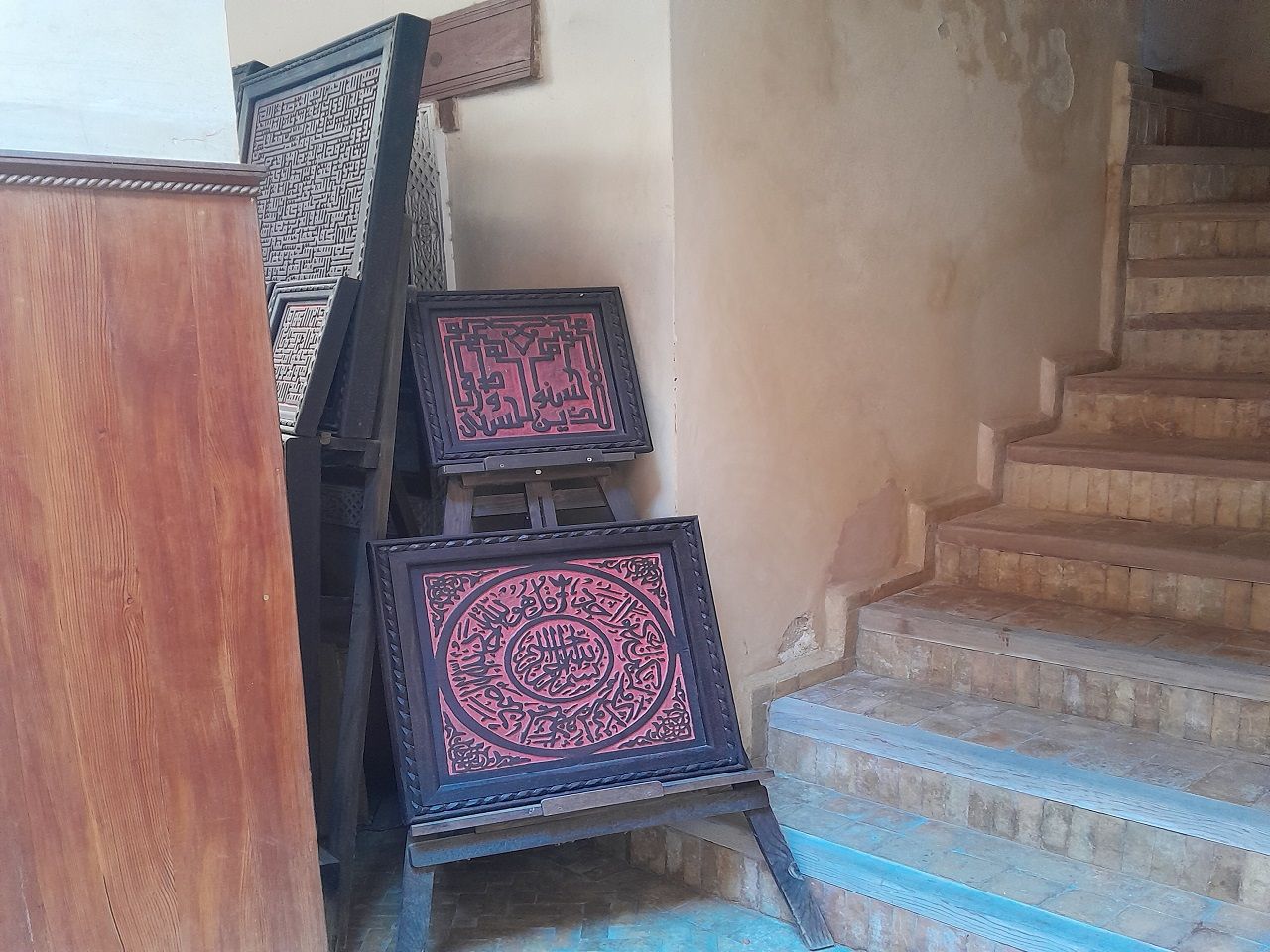
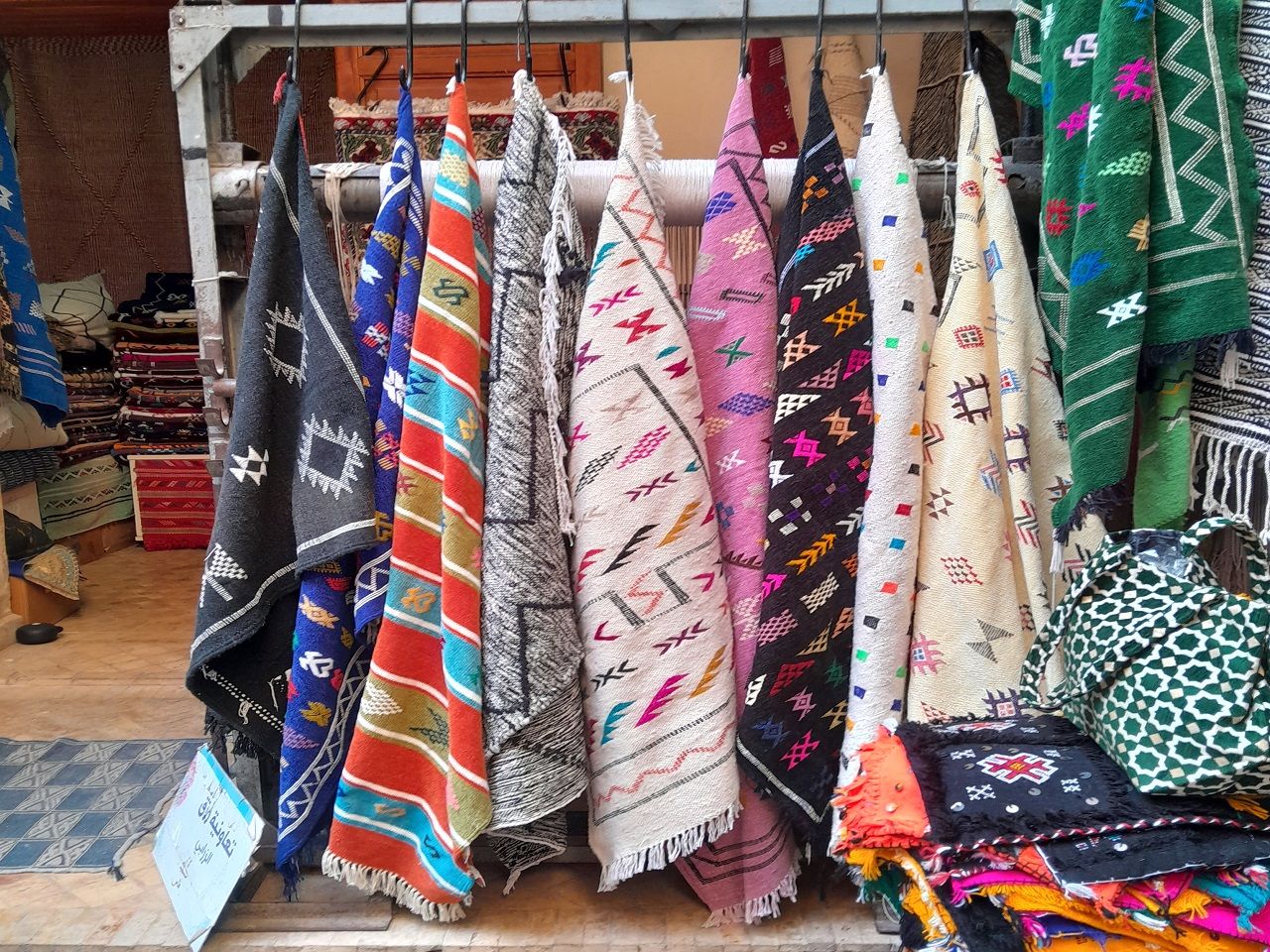
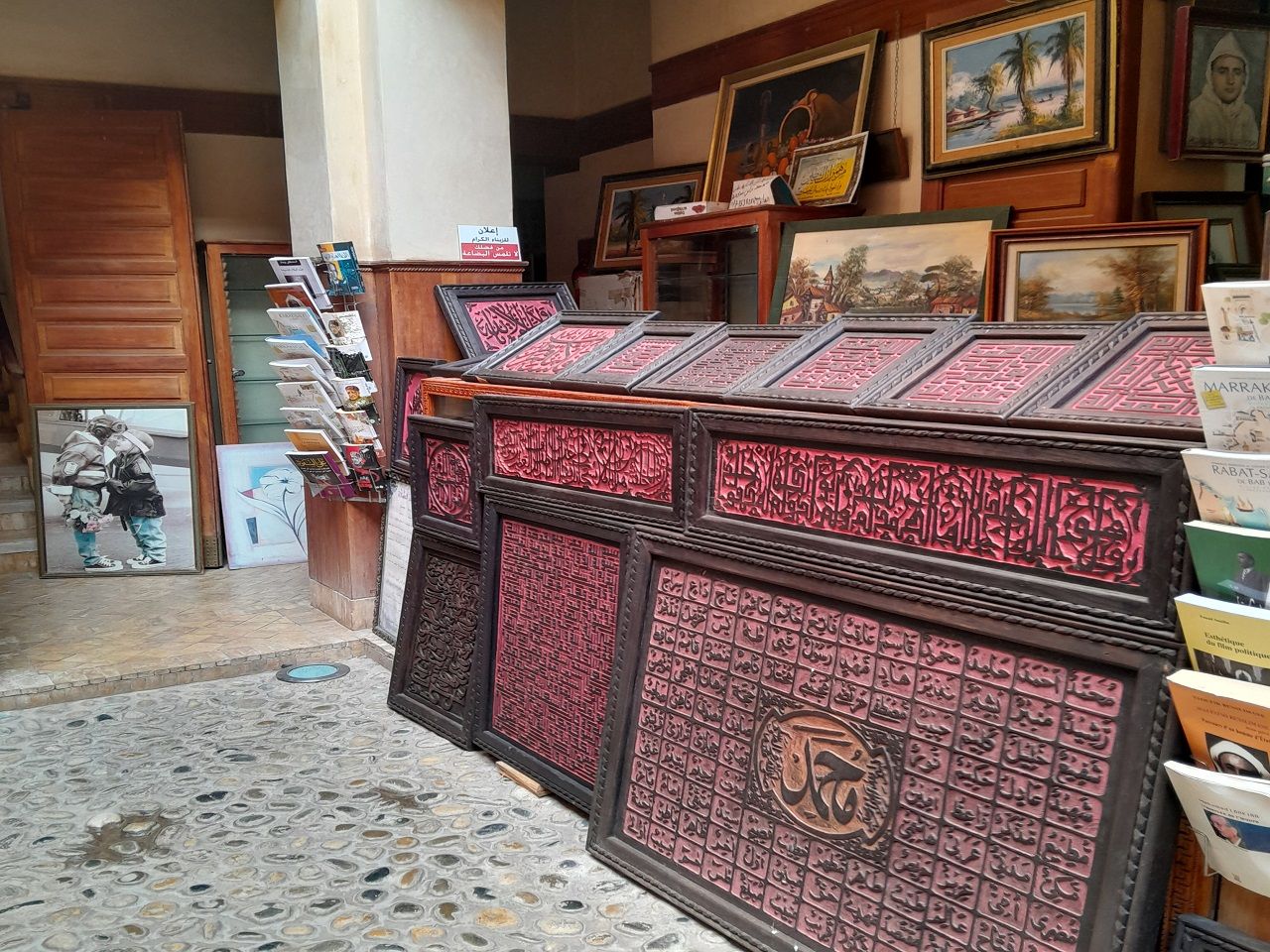
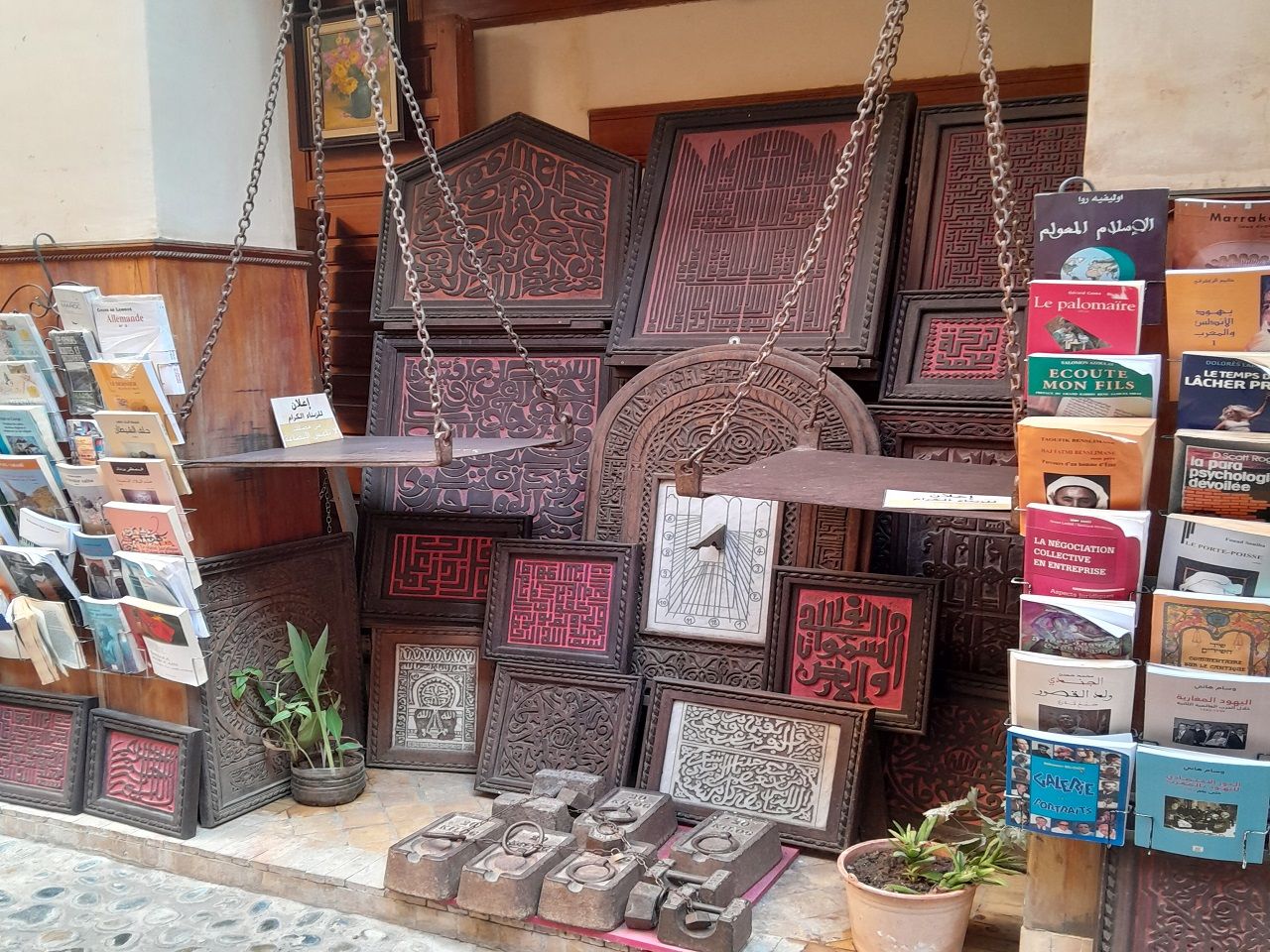
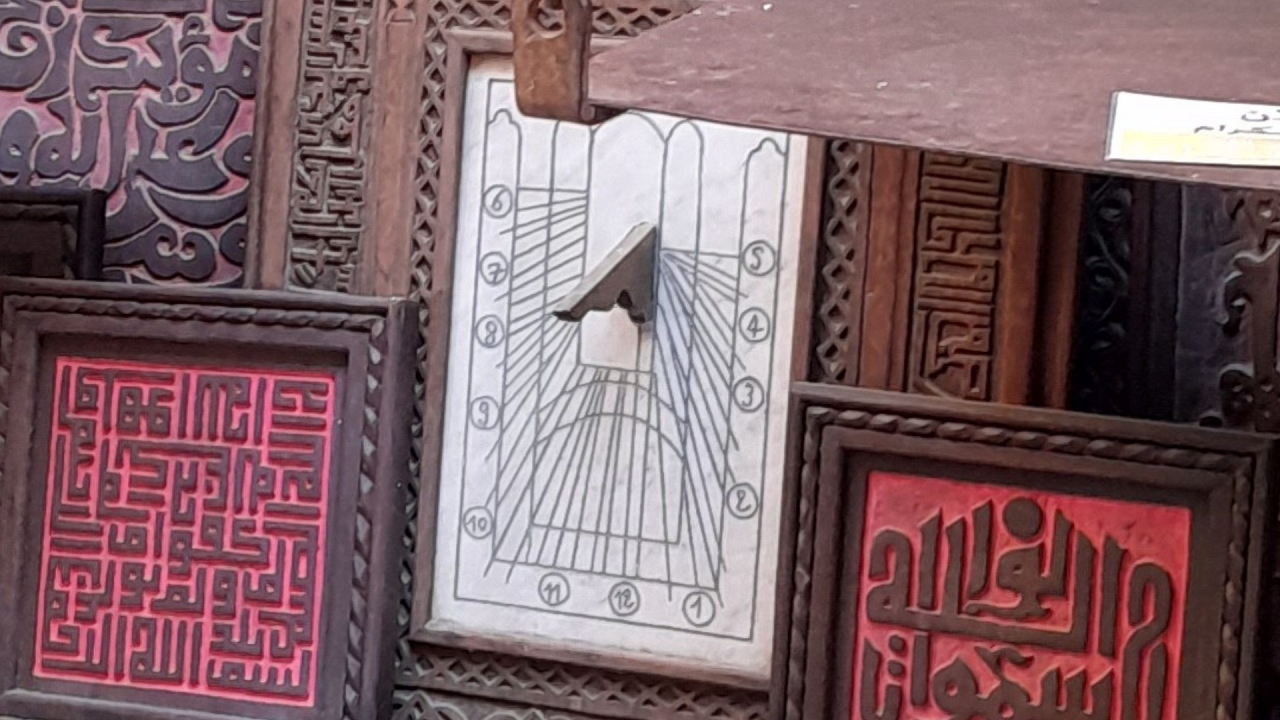
It's not just a monument, but a real journey back in time. As I walked through the premises, I imagined the lively exchanges, the travelers from far-off horizons, and the life that once filled this space with laughter, discussion and goods from all directions.
Then I decided to go up to the first and second floors. On the second floor, you can see corridors and rooms that once served as workshops for craftsmen.
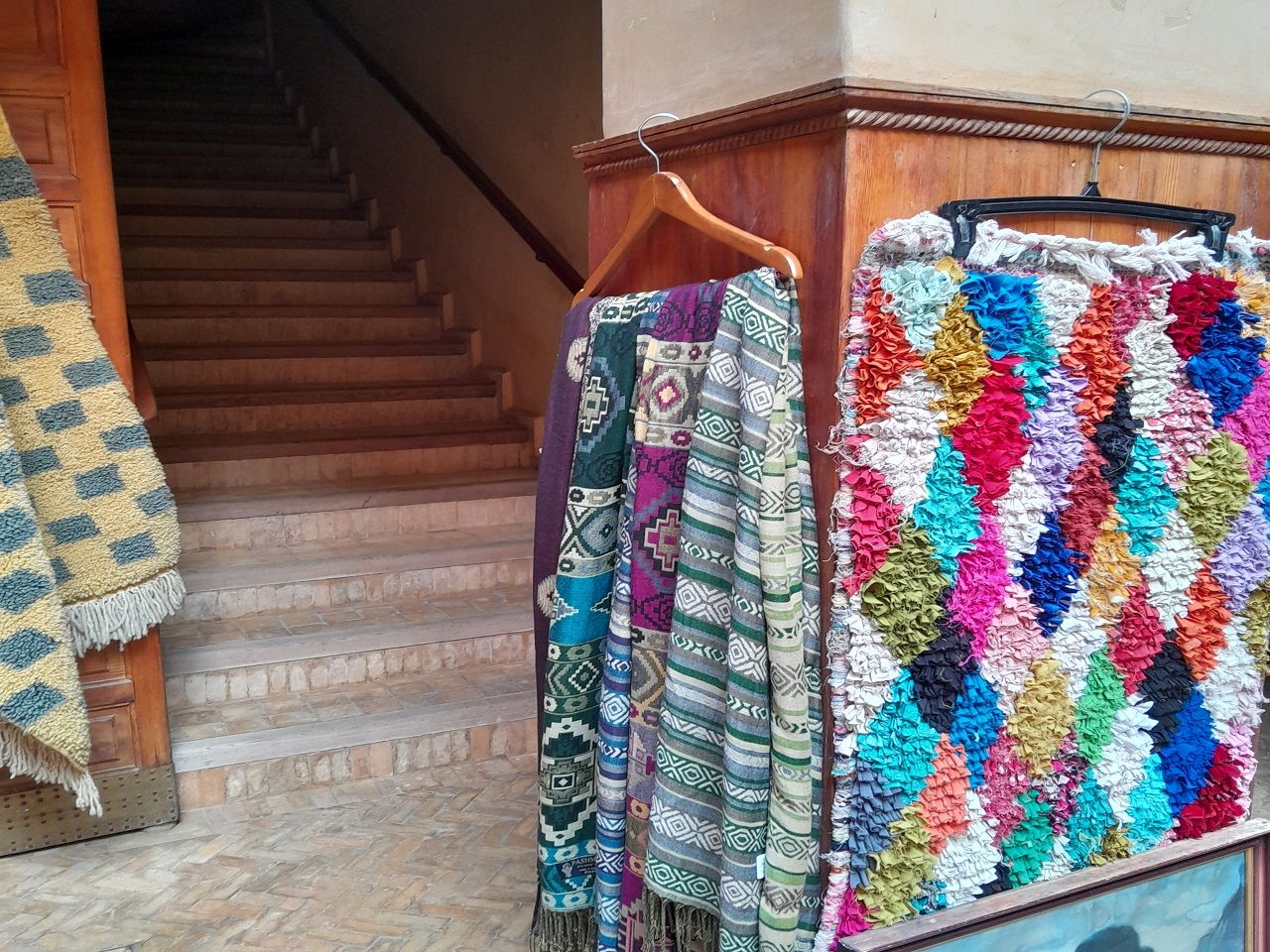
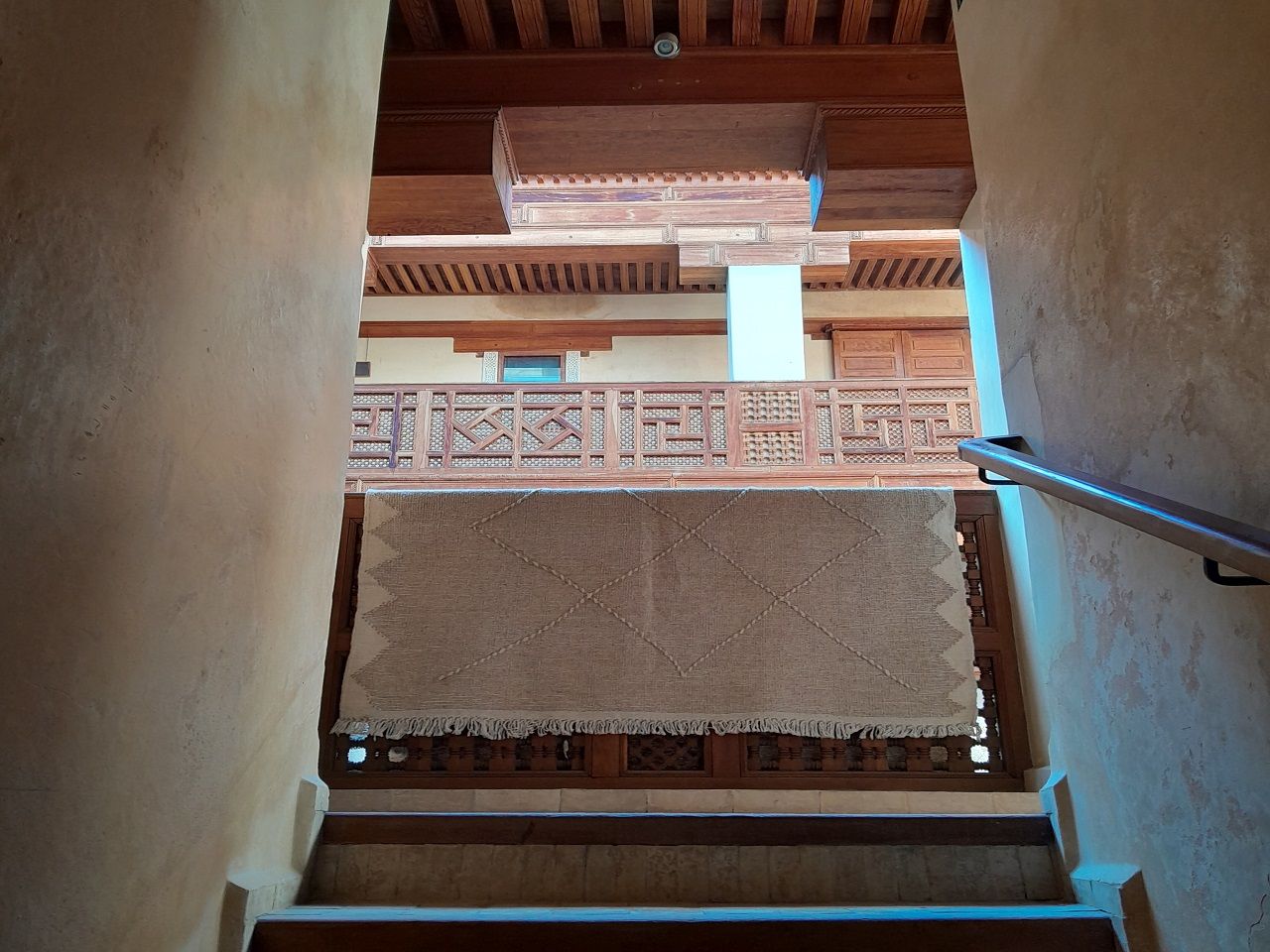
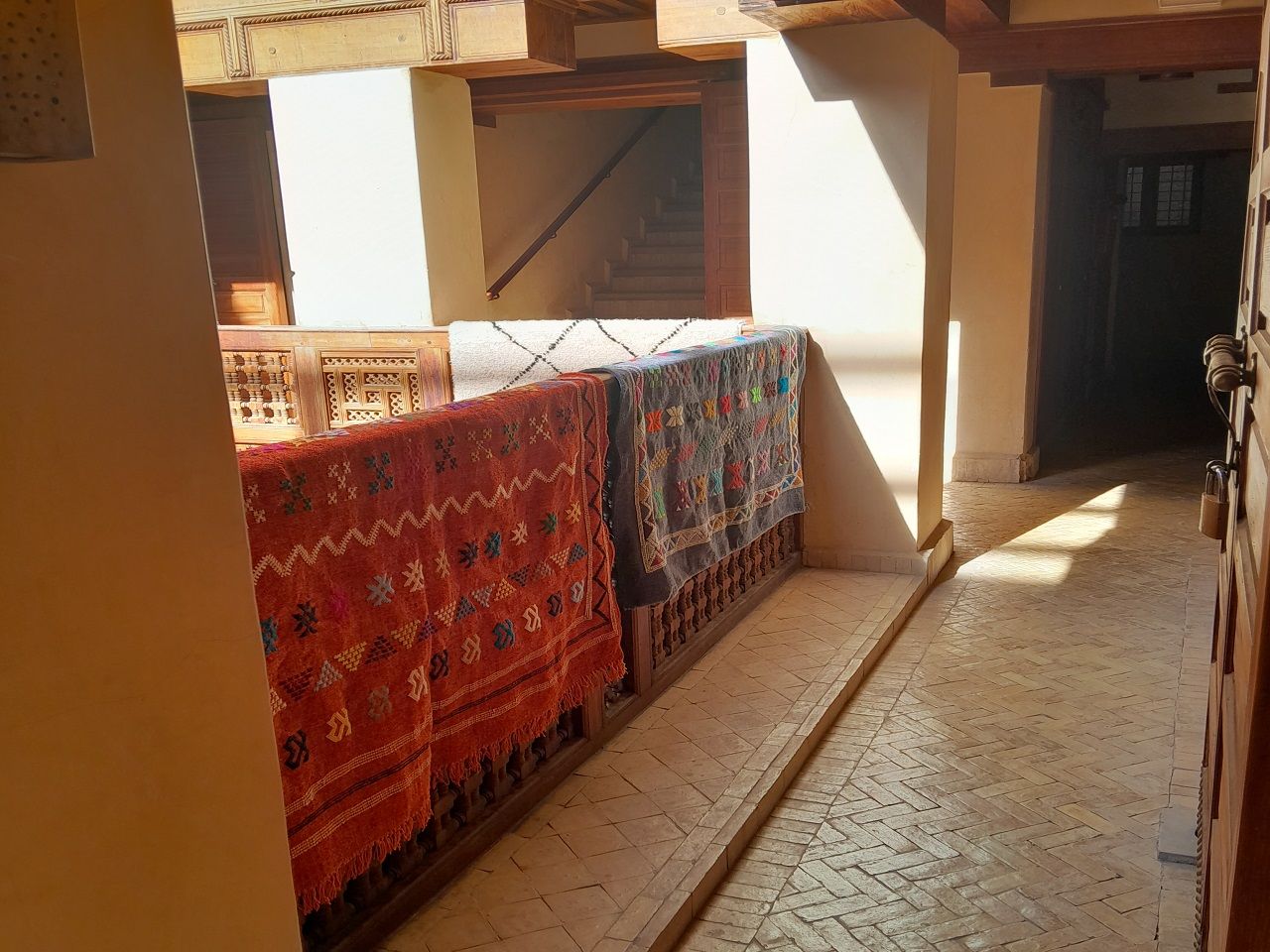
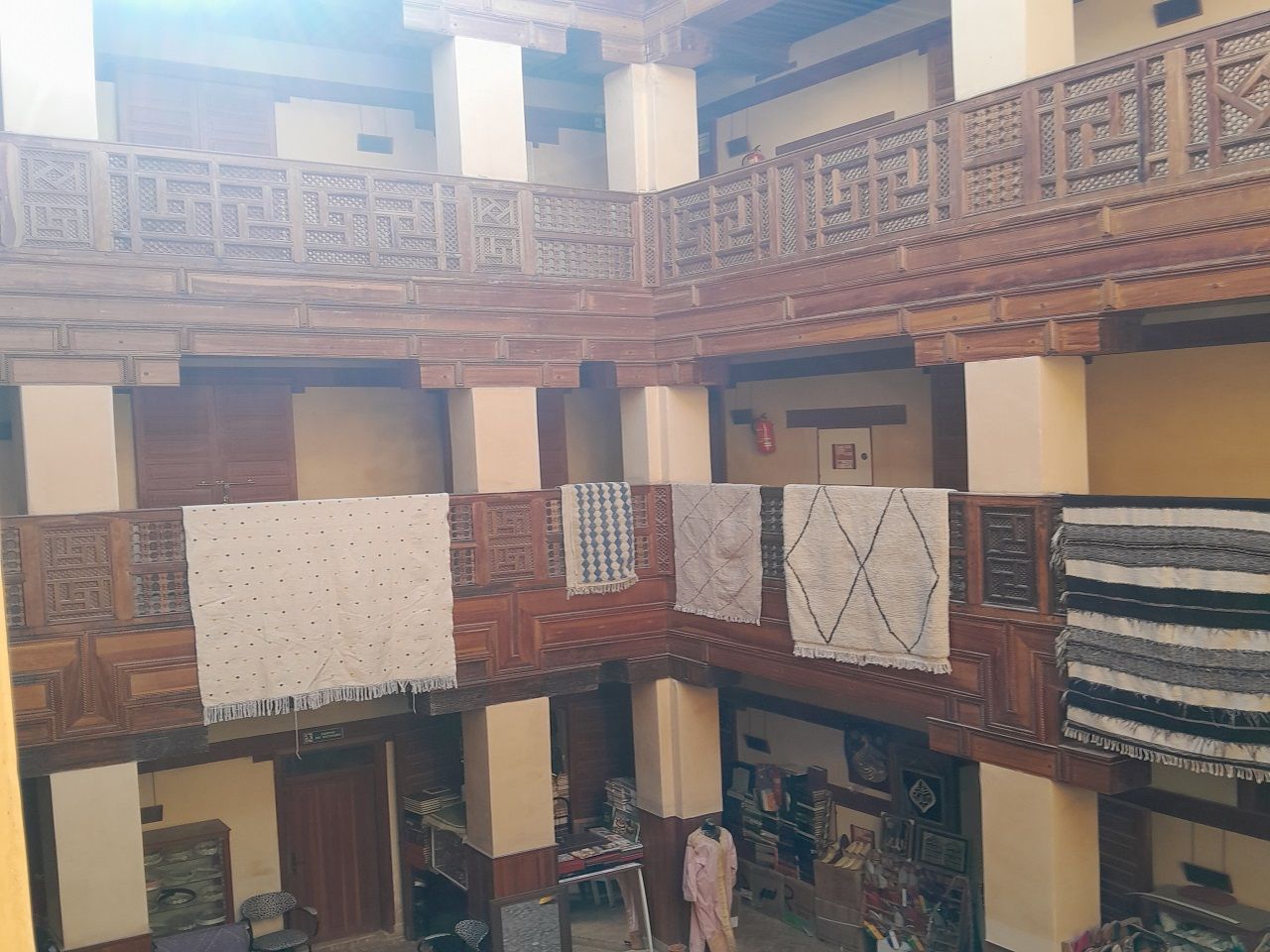
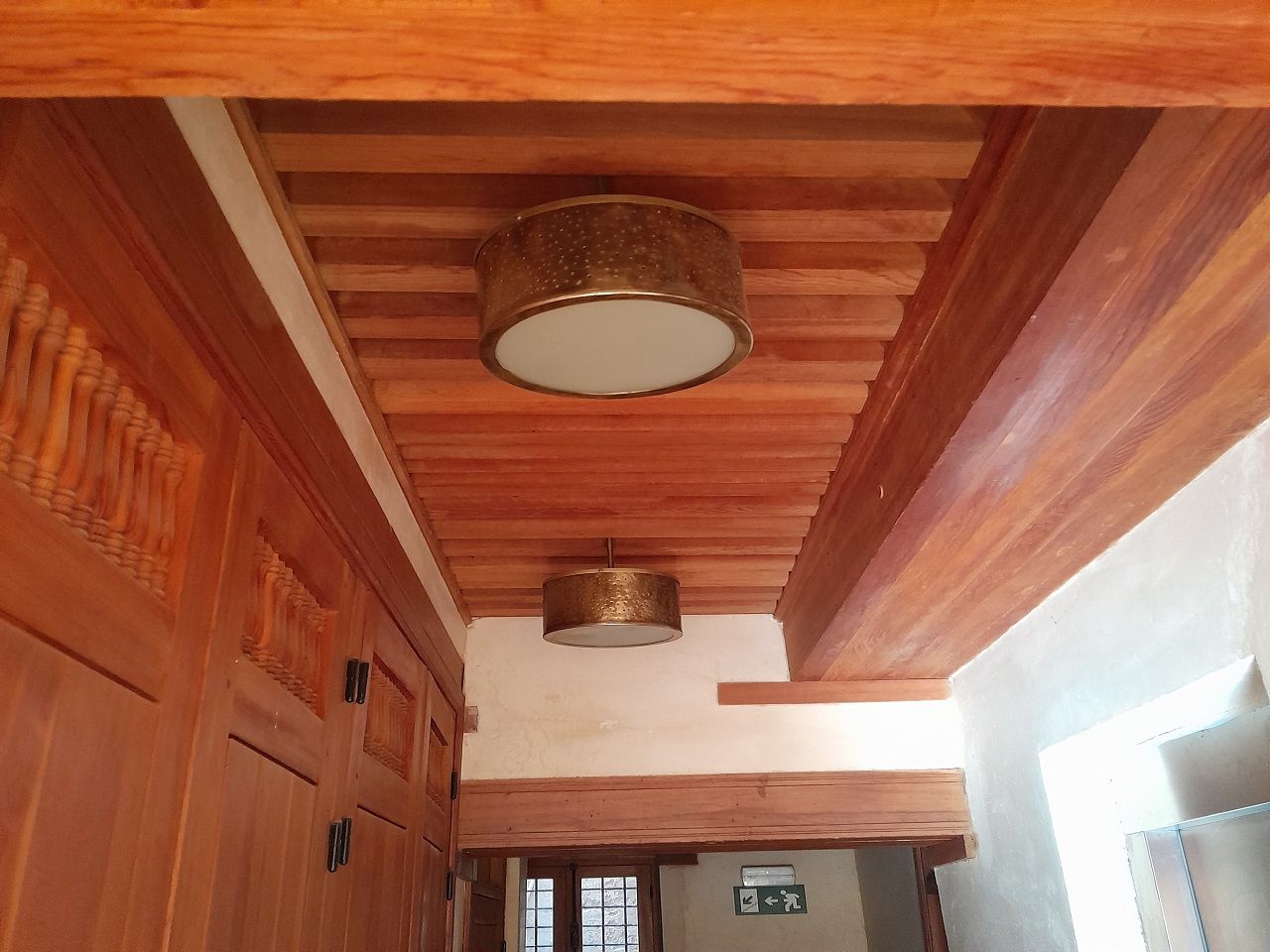
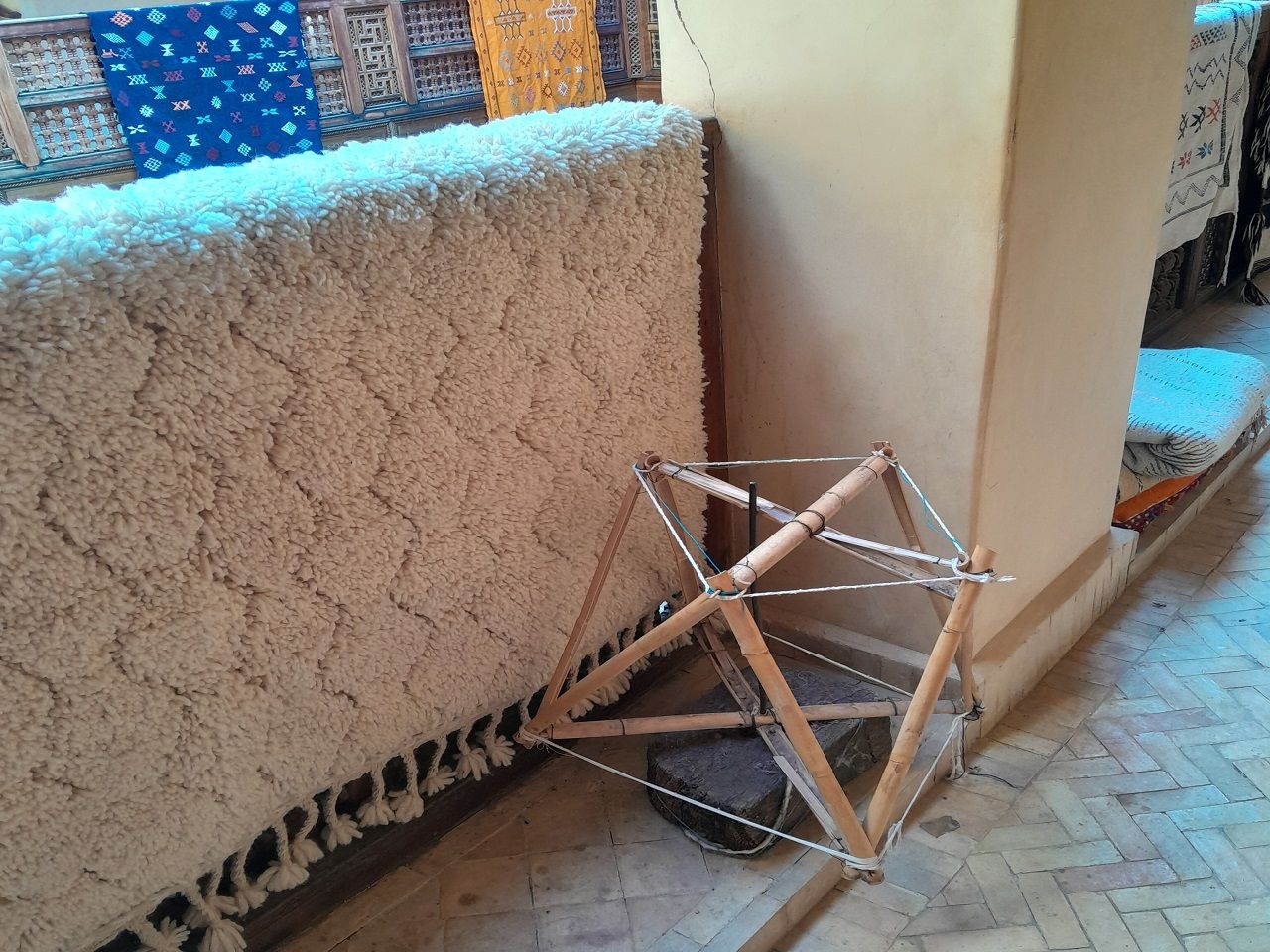
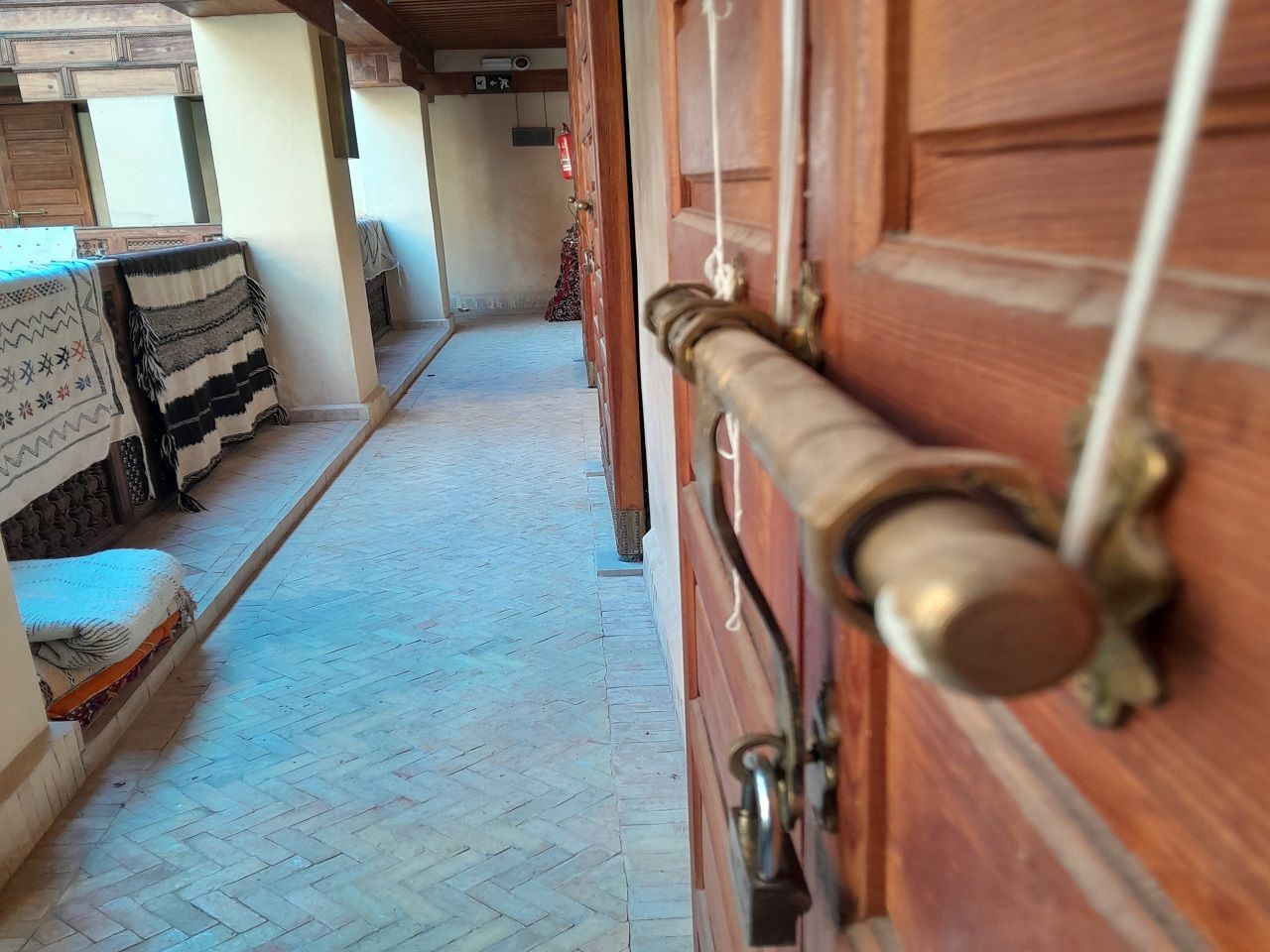
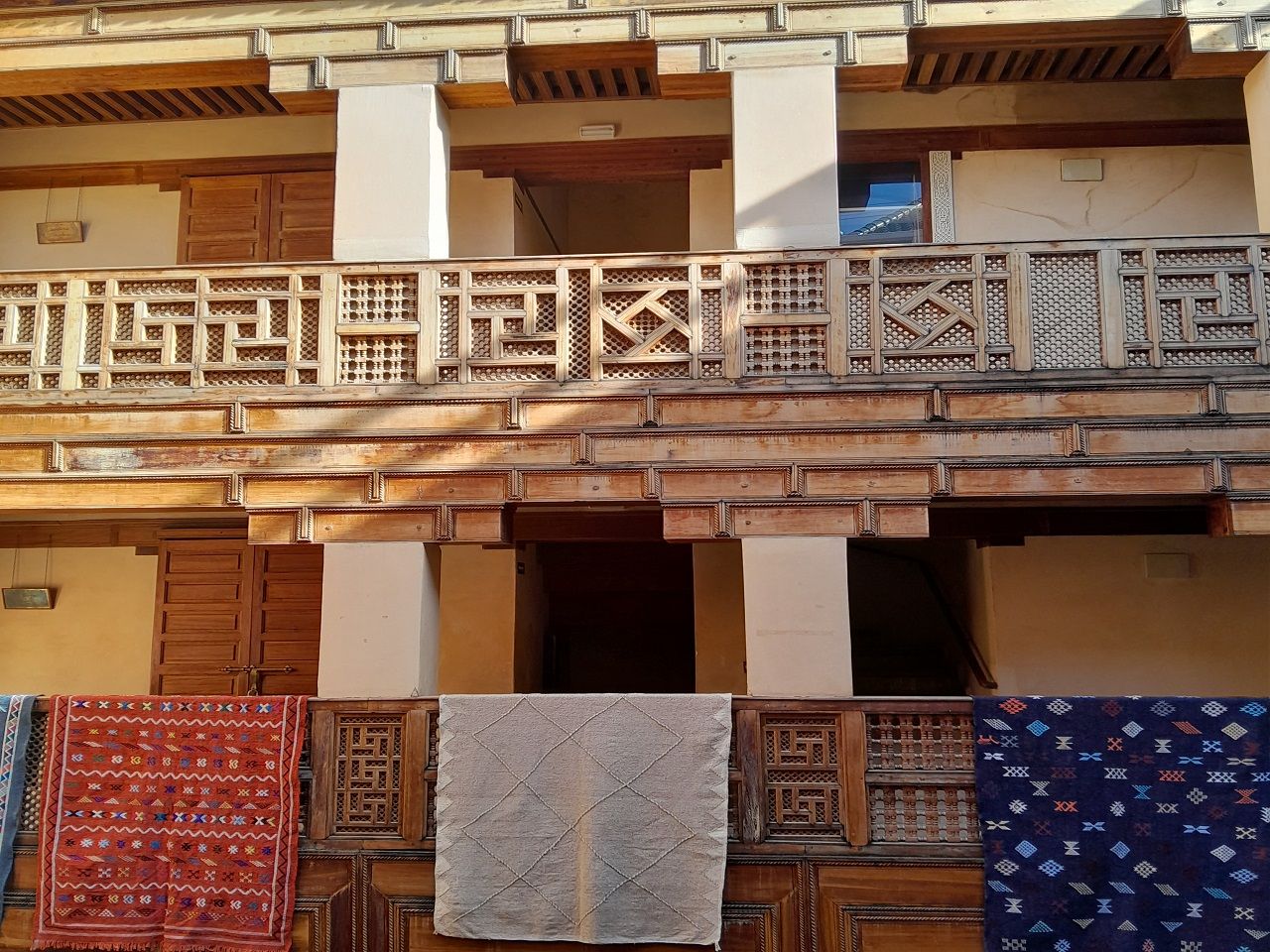
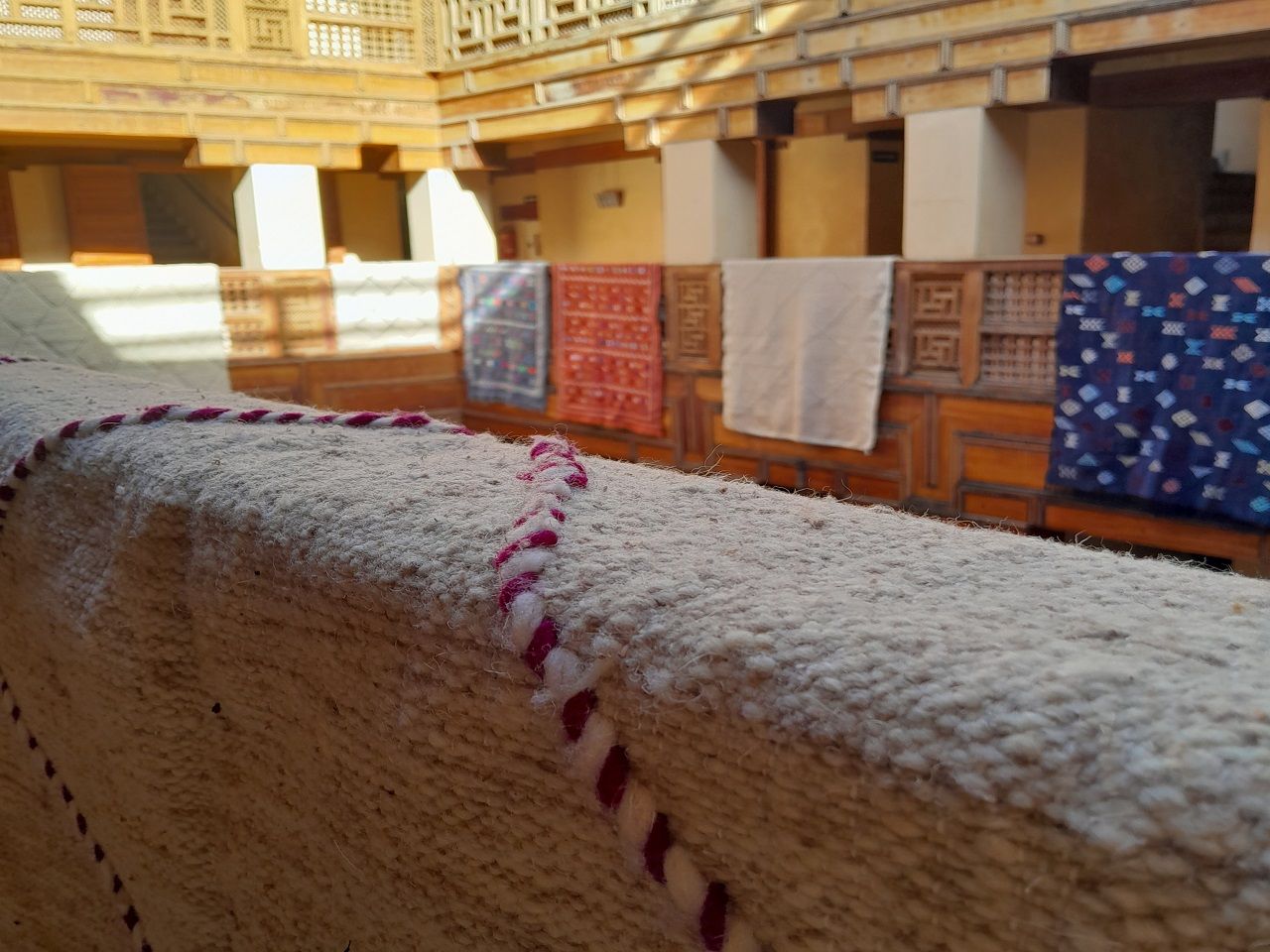
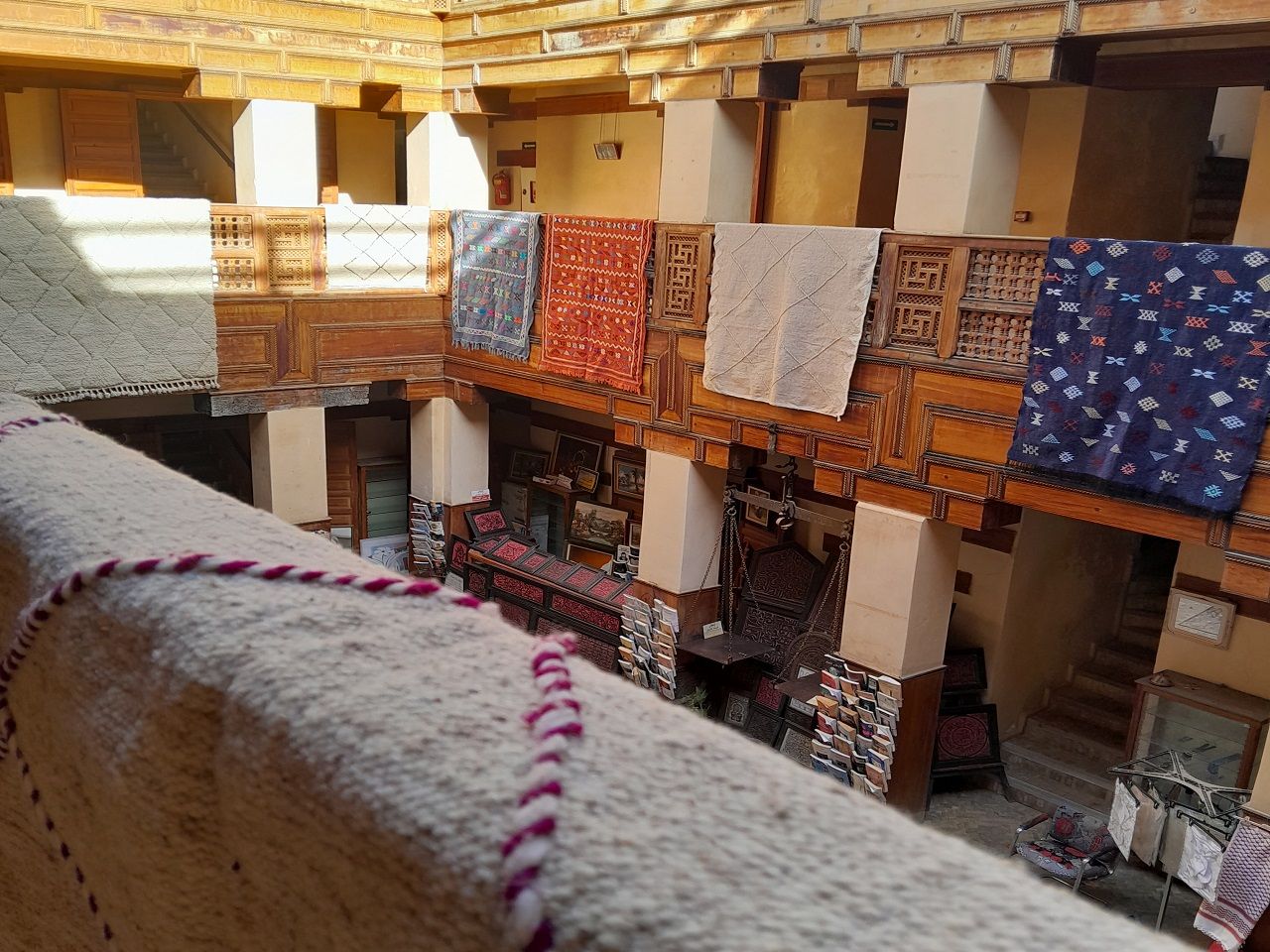
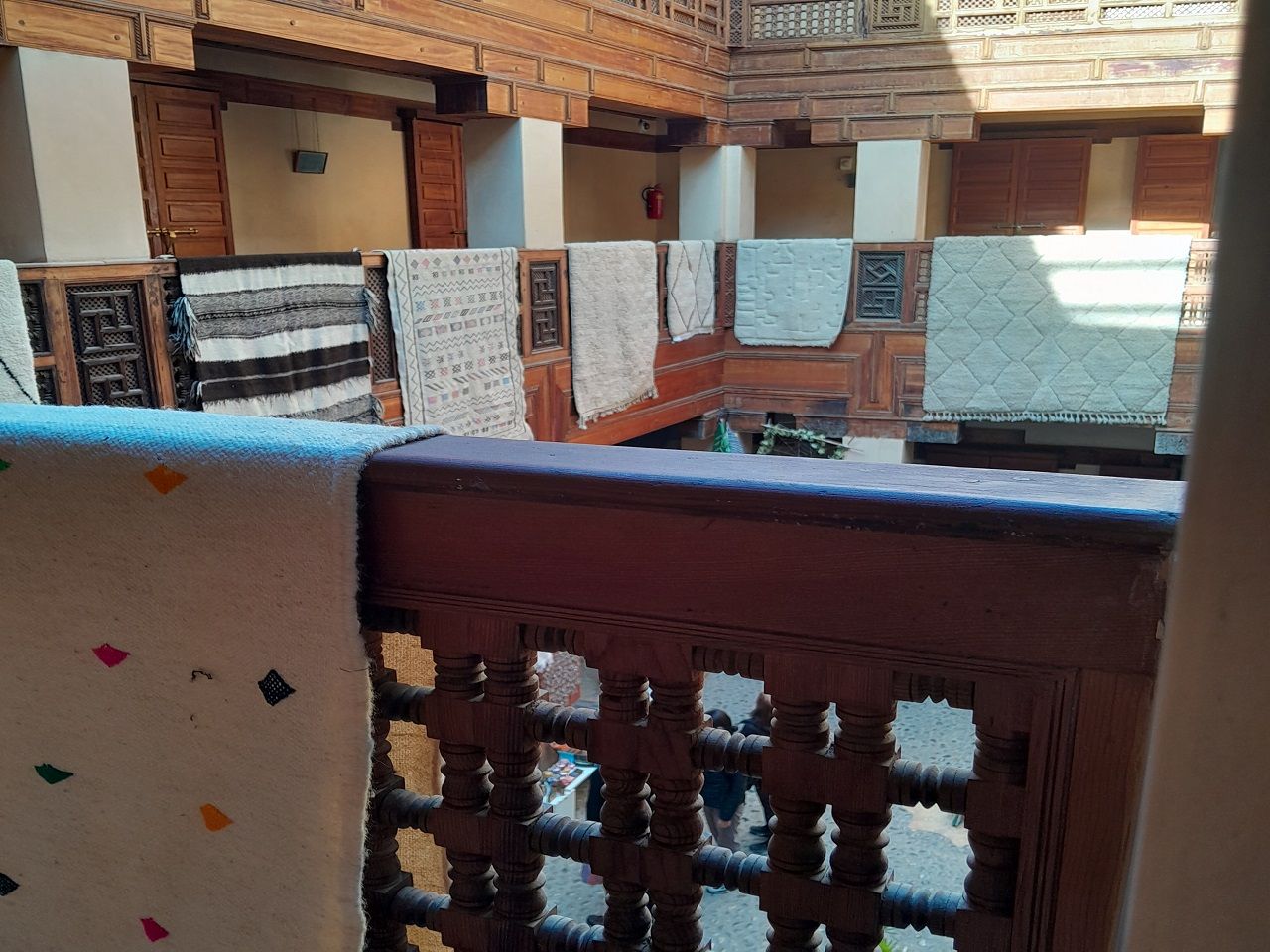
On the second floor, the view was different. From the top, you could admire the central courtyard and feel as if you had stepped back several centuries.
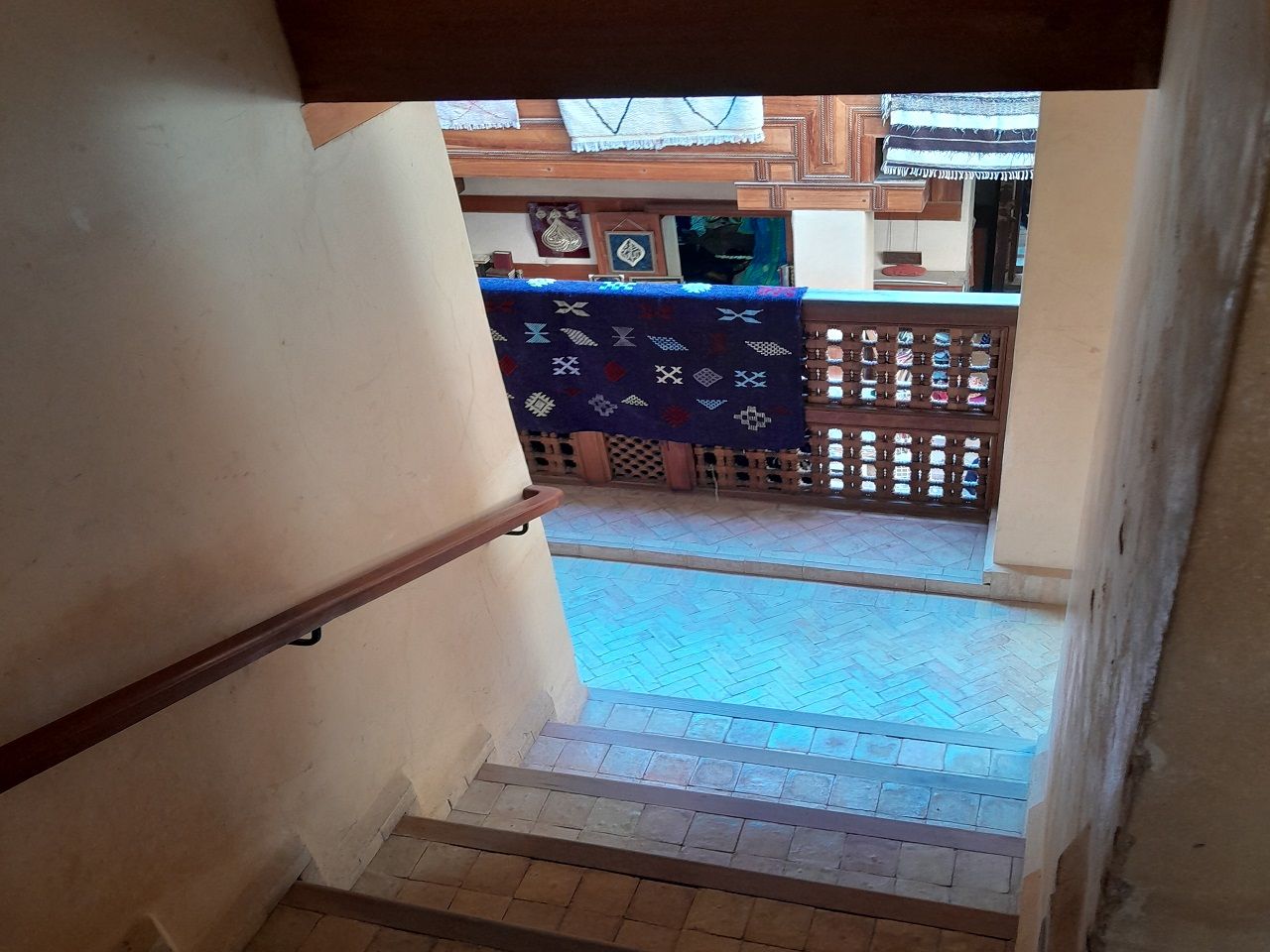
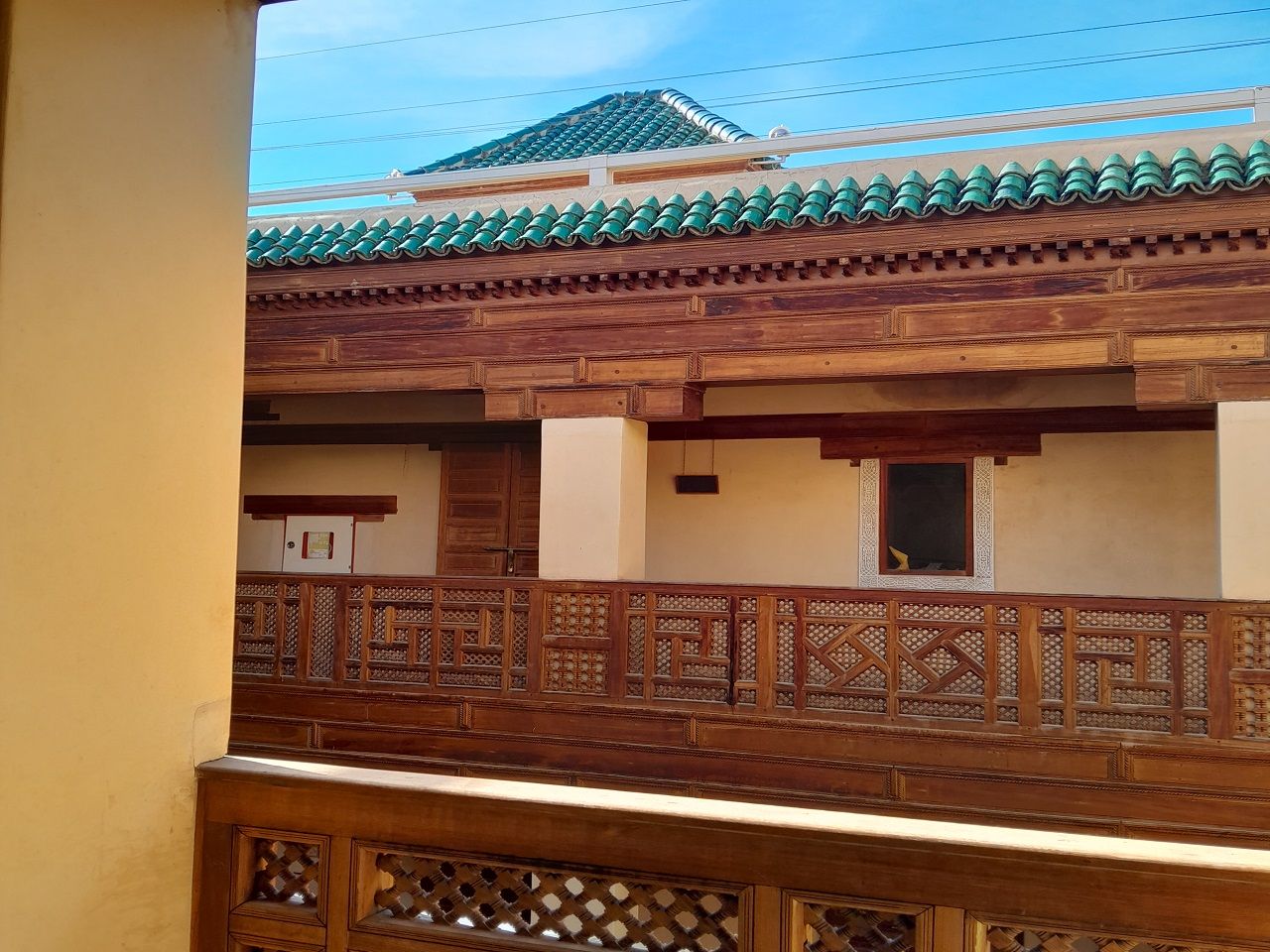
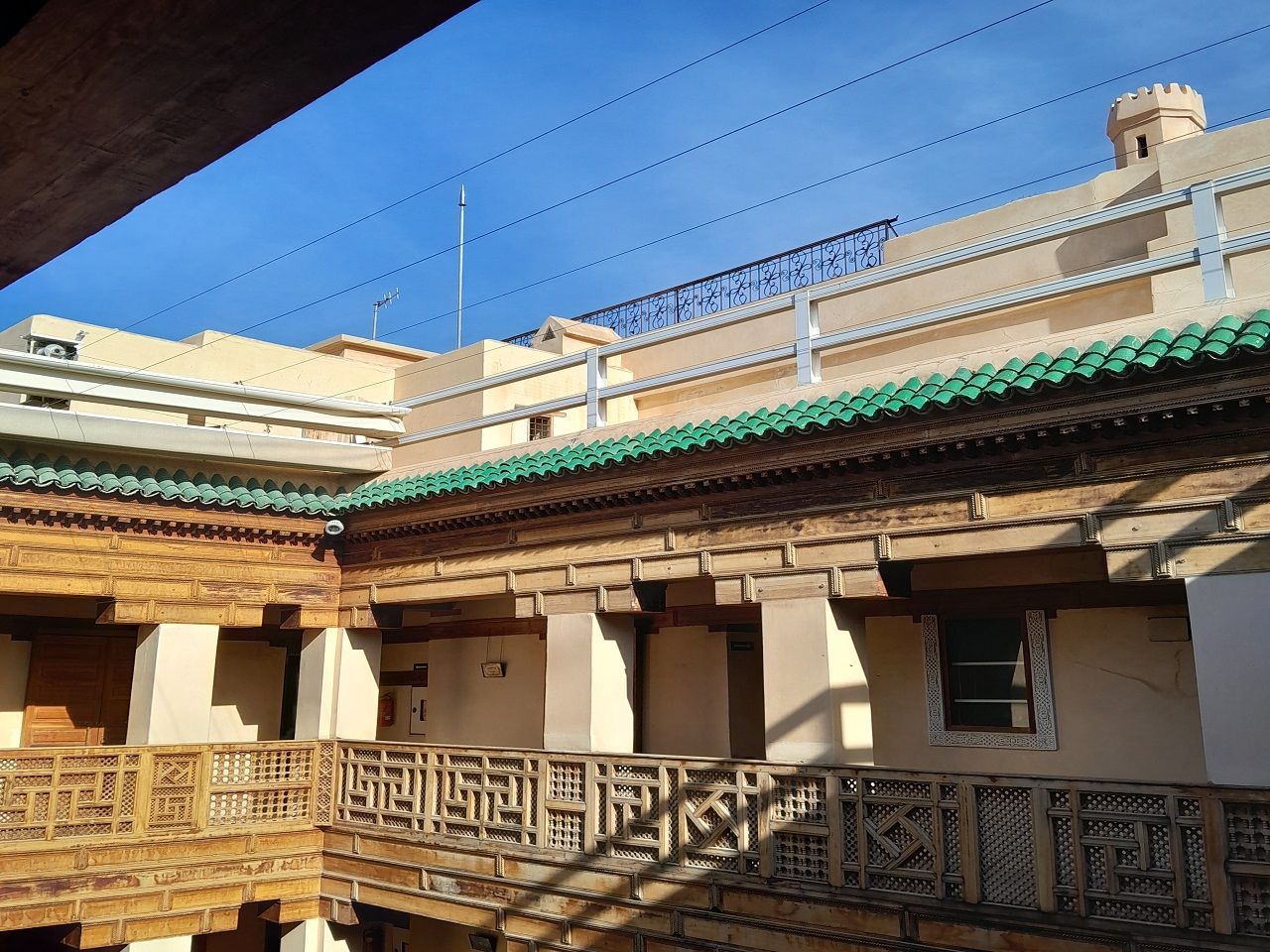
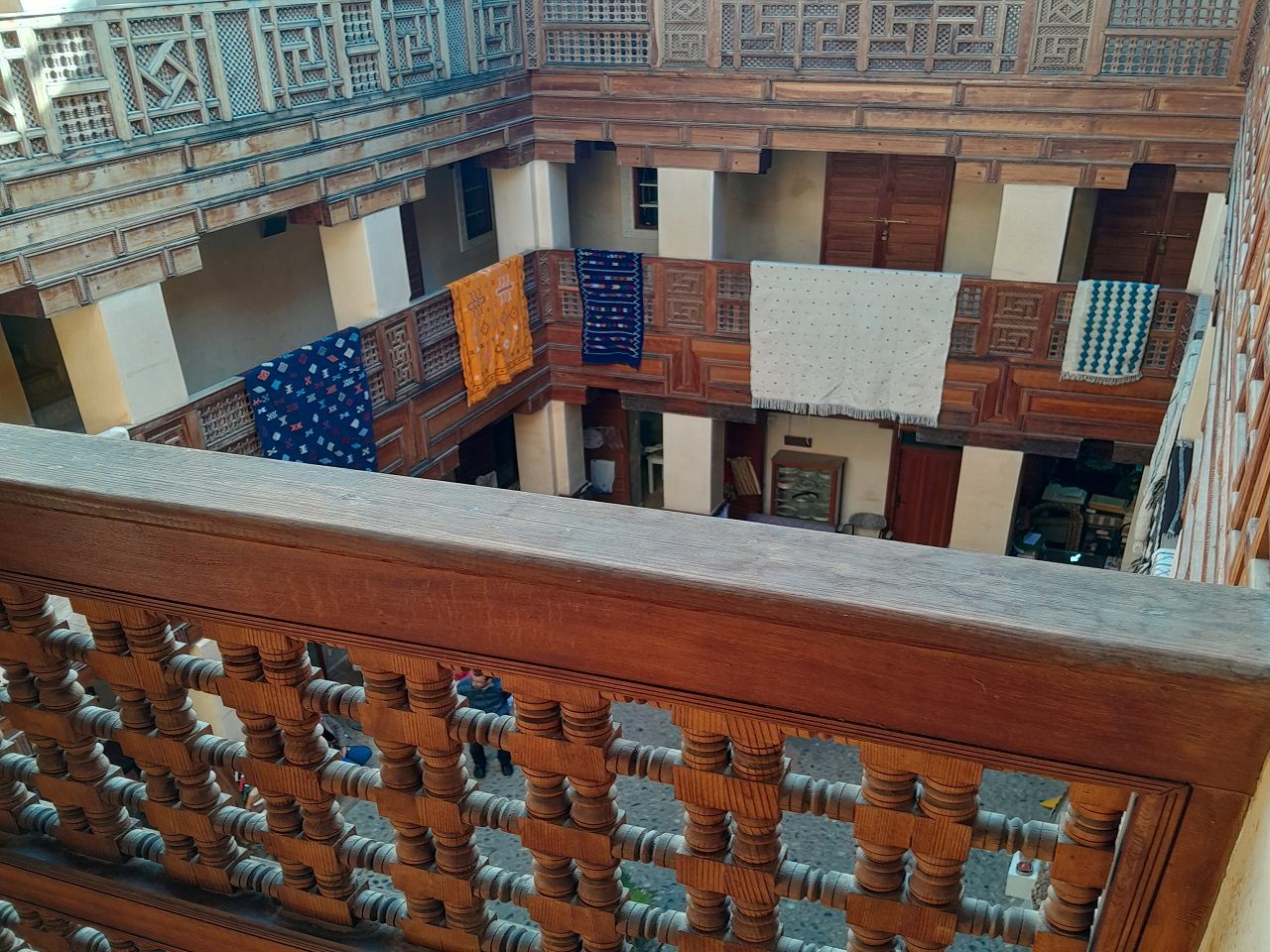
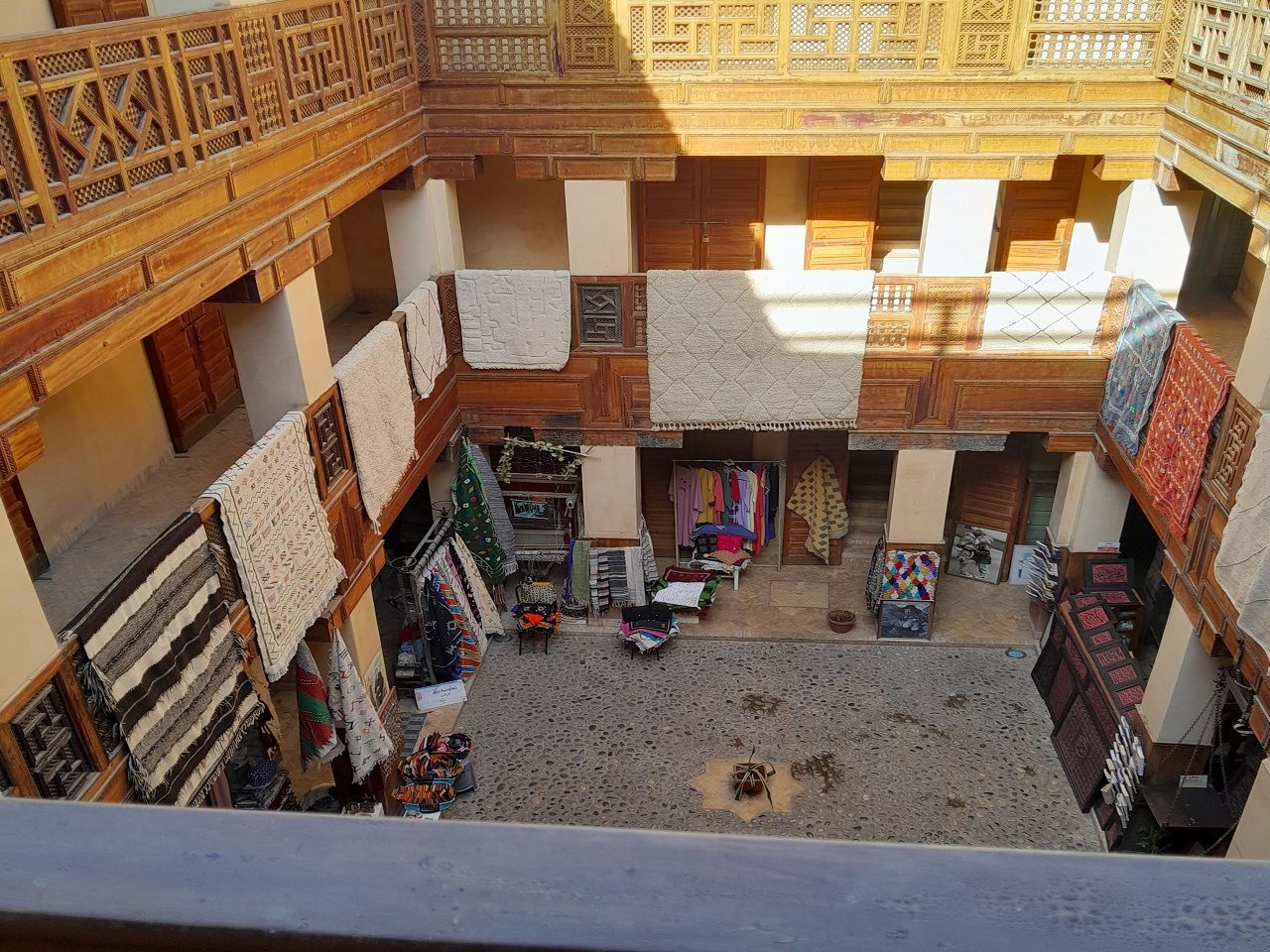
The Fondouk Staouniyine, a treasure trove of Moroccan heritage, dates back to the 12th century. This place, steeped in history, has recently benefited from a meticulous restoration, aimed not only at preserving its heritage, but also at opening its doors to visitors curious to explore its mysteries. It's an admirable initiative that allows everyone to reconnect with a rich and fascinating past.
I am deeply grateful for having had the opportunity to discover this Foundouk. It's a visit I'll never forget, and one I highly recommend to anyone who has the opportunity to visit the city of Fes.
Thank you so much for reading this far. I'd be delighted to hear your impressions in the comments. See you soon for another post full of stories, discoveries and precious moments to share.

I'm Redwan from Morocco, a country rich in history, culture and natural landscapes! I've always had a passion for travelling and discovery. Nothing gives me greater pleasure than exploring new places, whether historical, archaeological or in the heart of nature. Through my blogs, you can discover the hidden gems of Morocco, whether you want to admire the fascinating architecture of a historic site, delve into the legends surrounding an archaeological site, or simply marvel at the beauty of Moroccan nature!
Photos taken by my own phone (Samsung Galaxy A04s).
